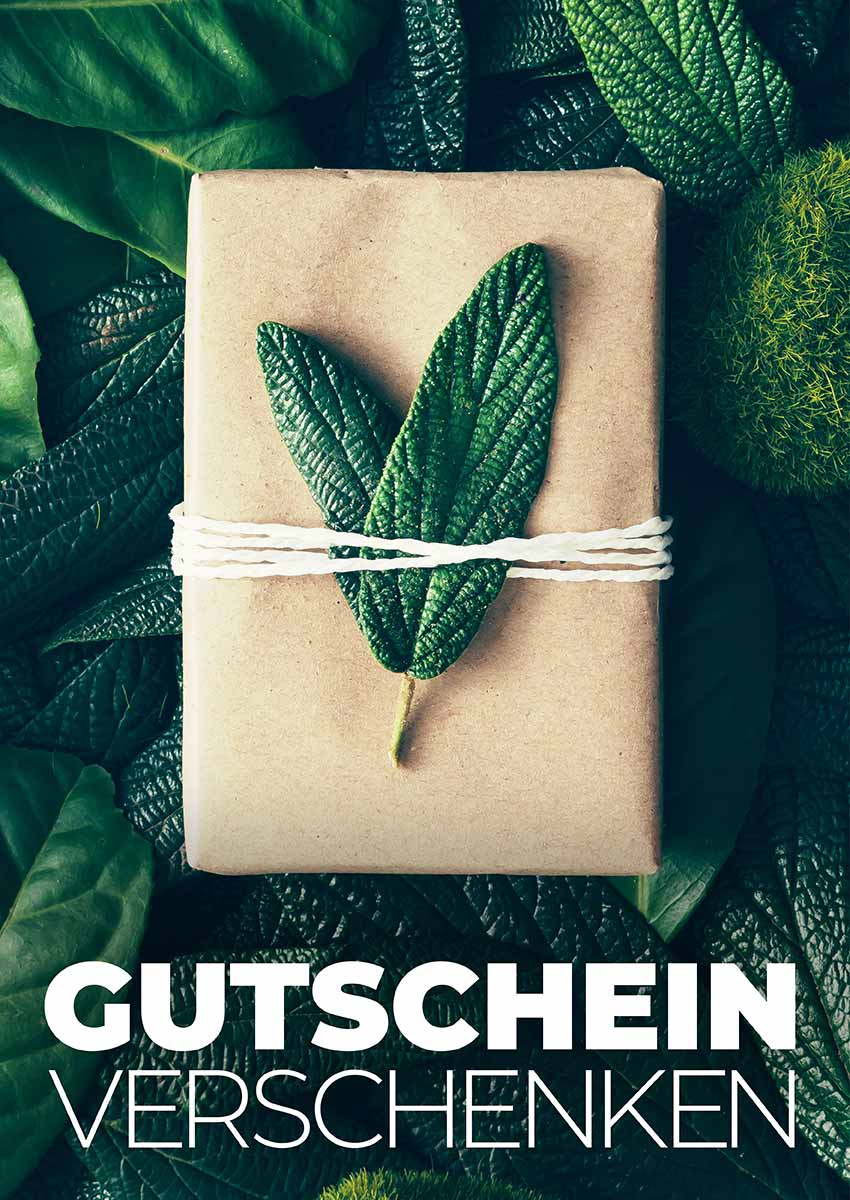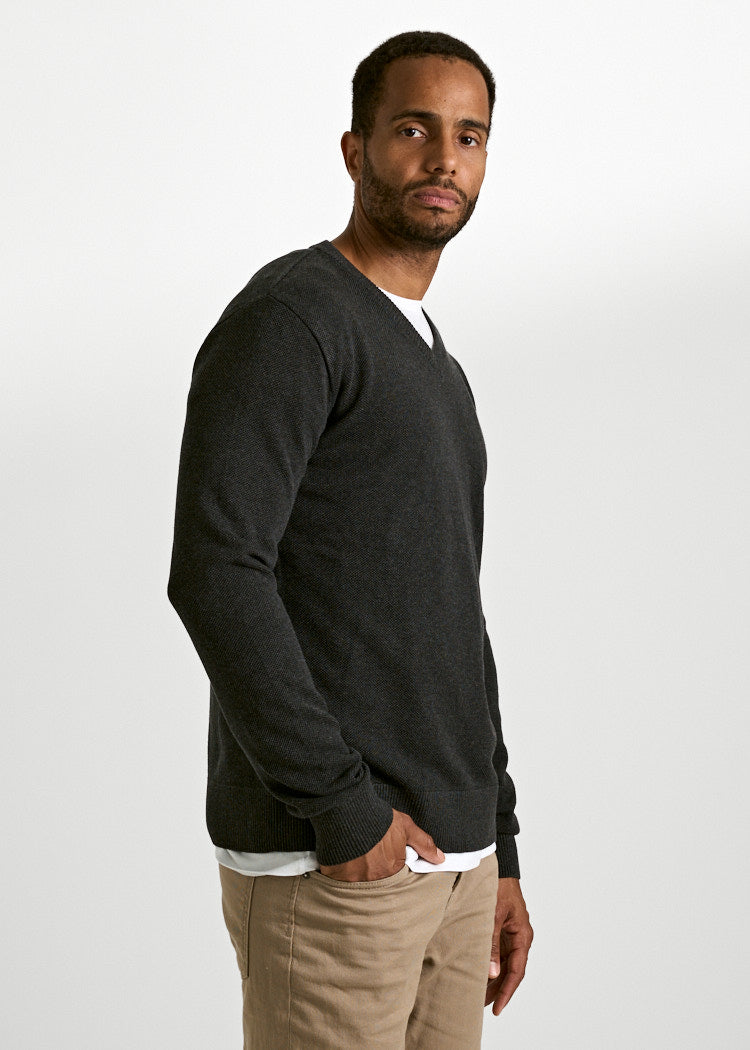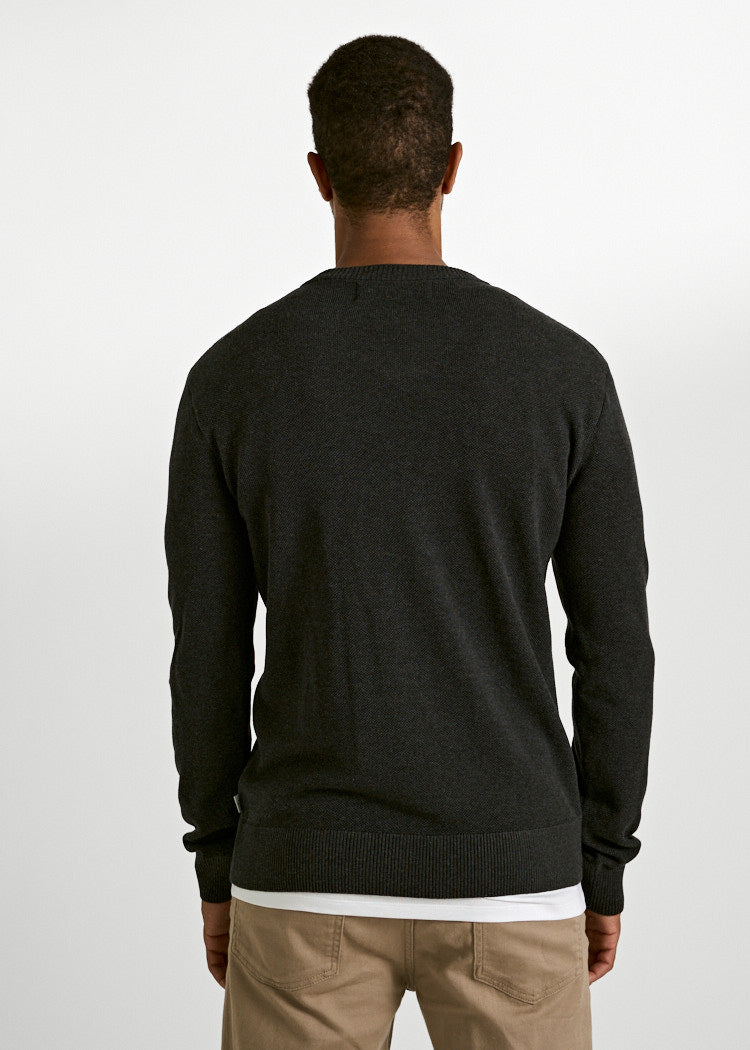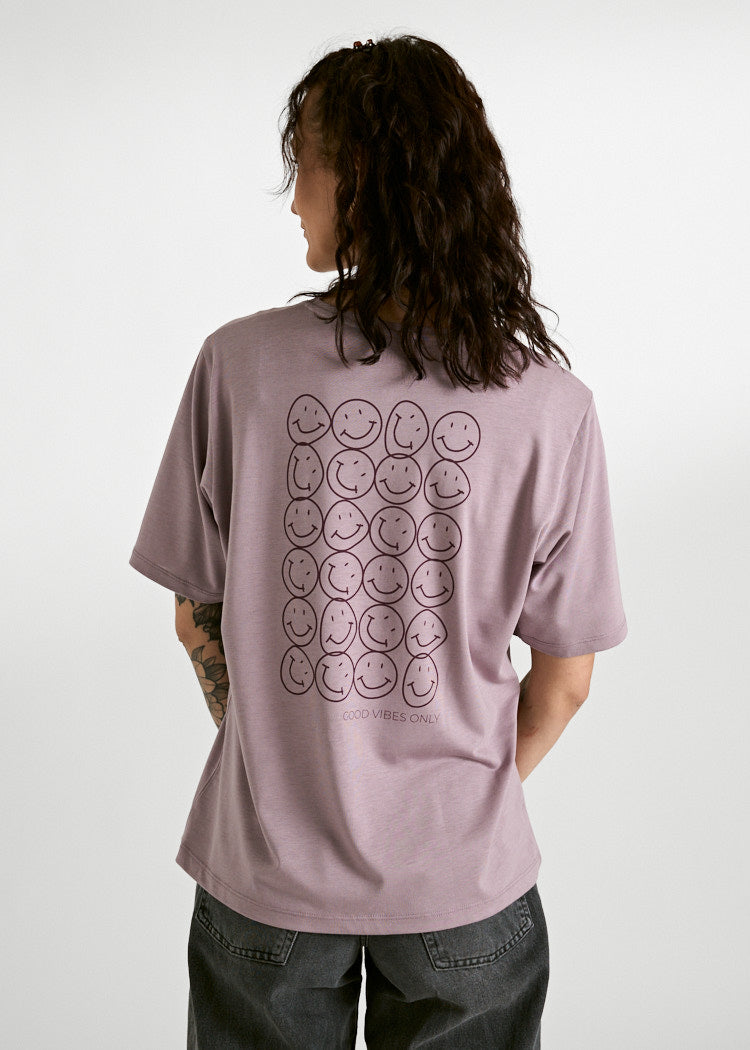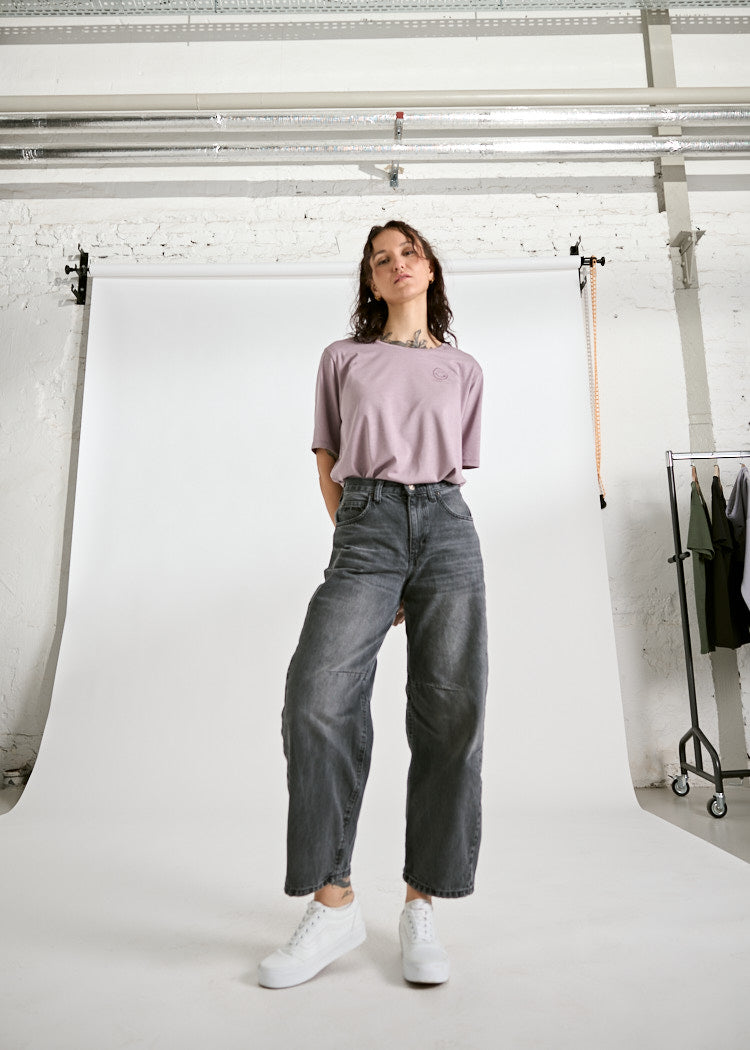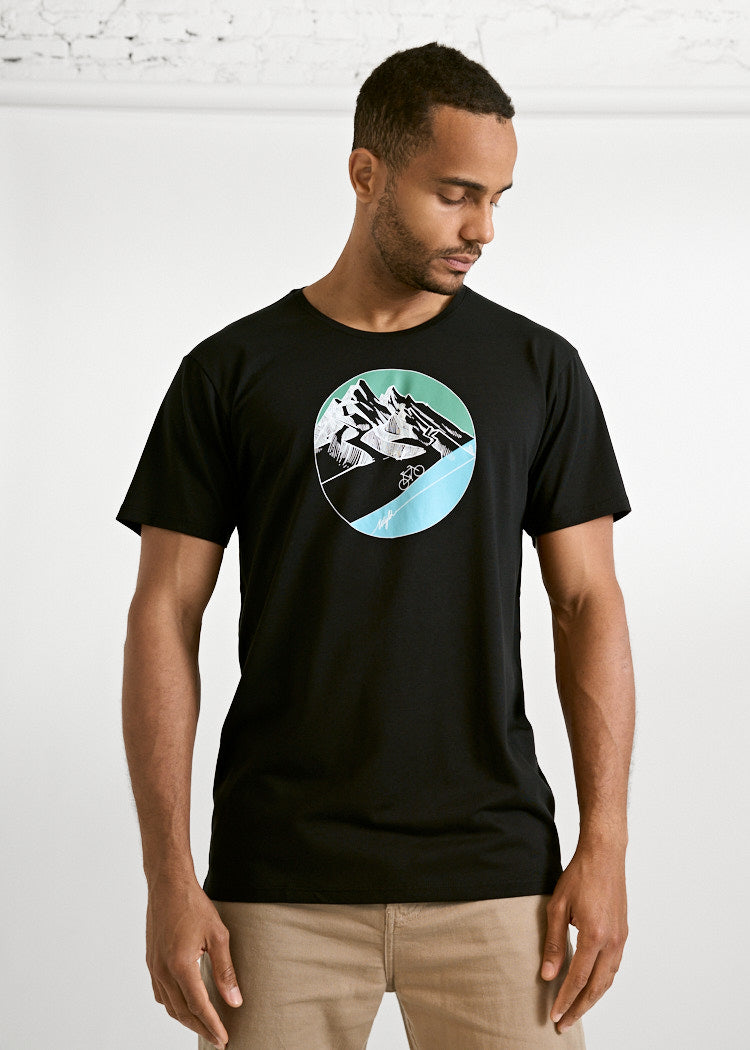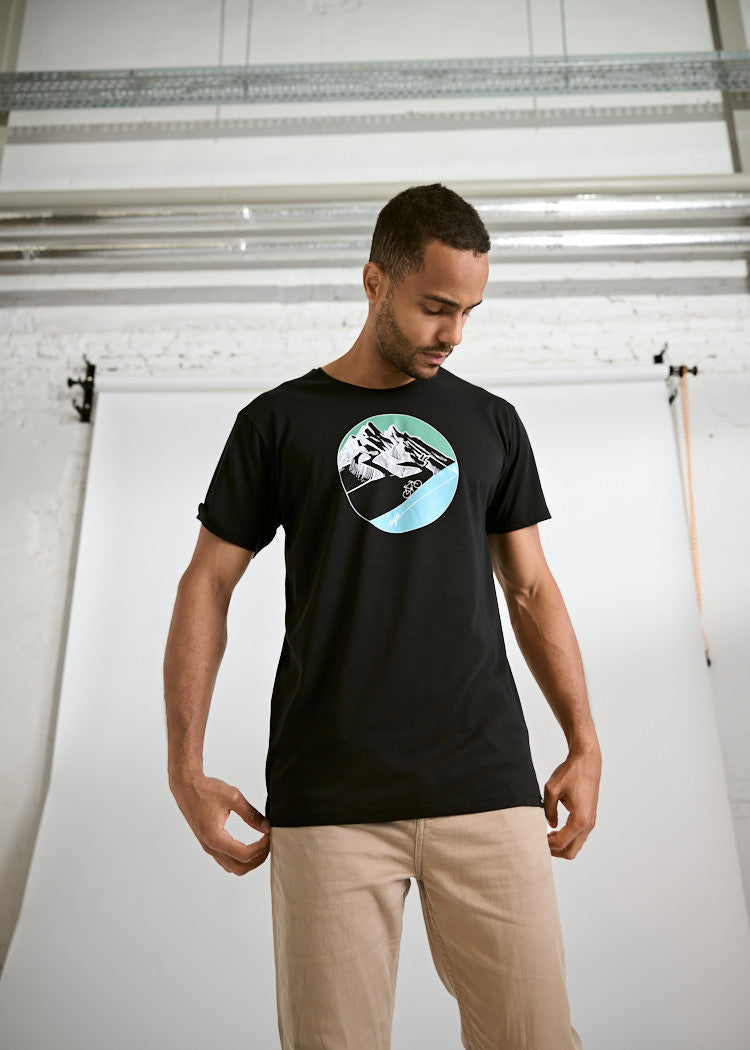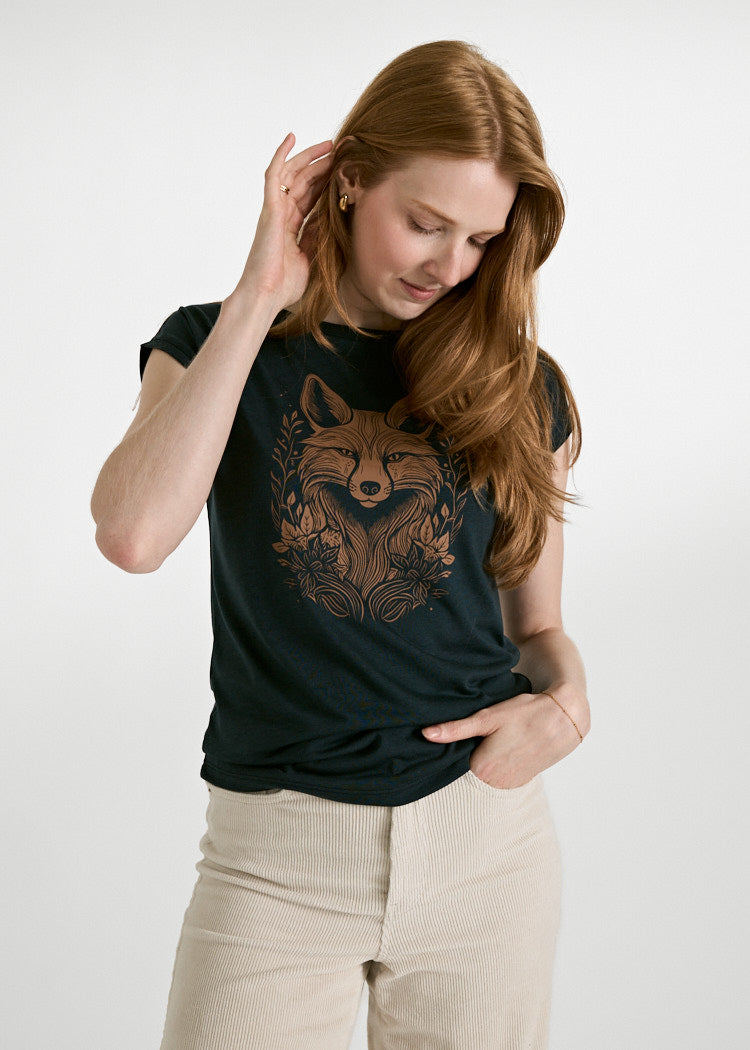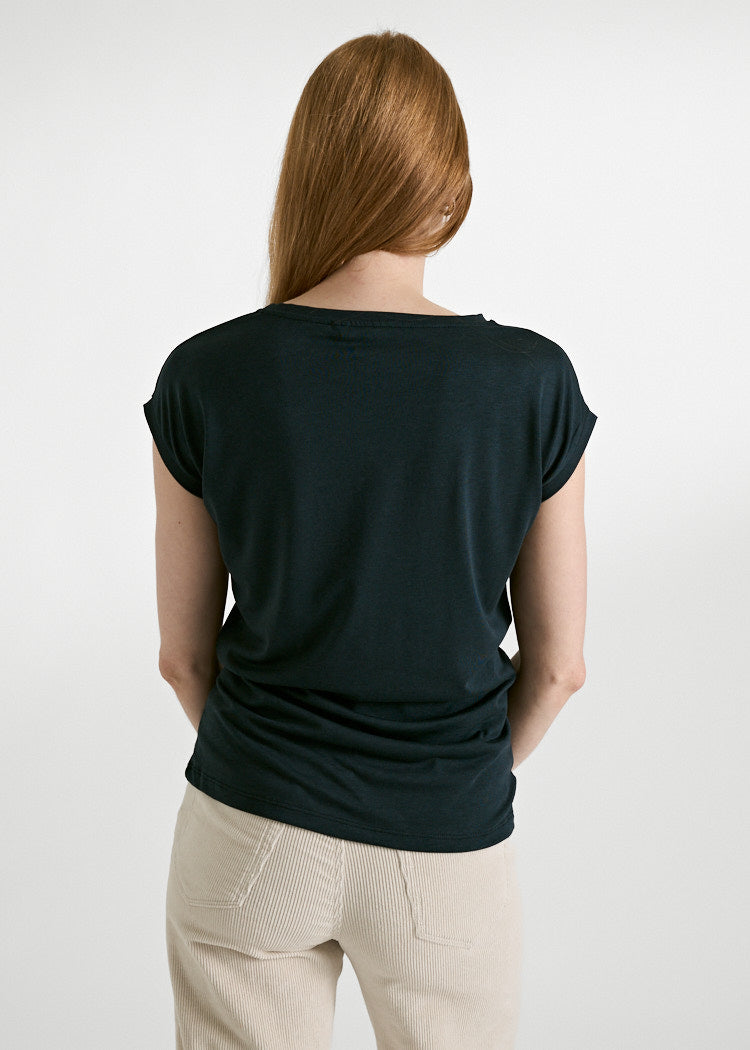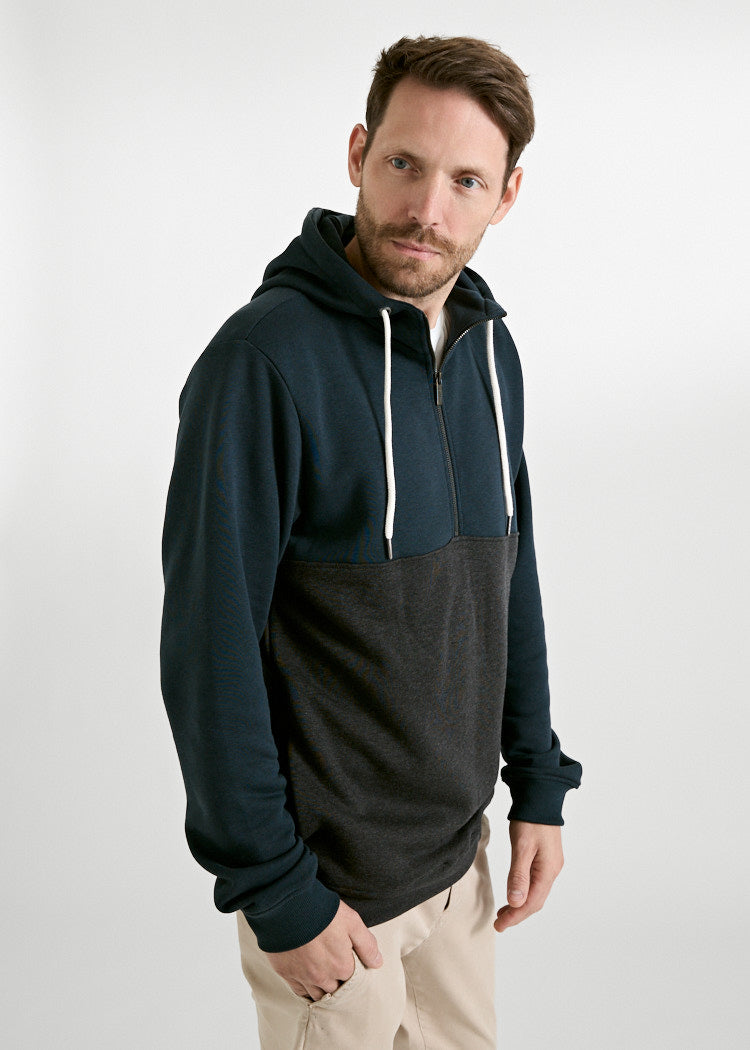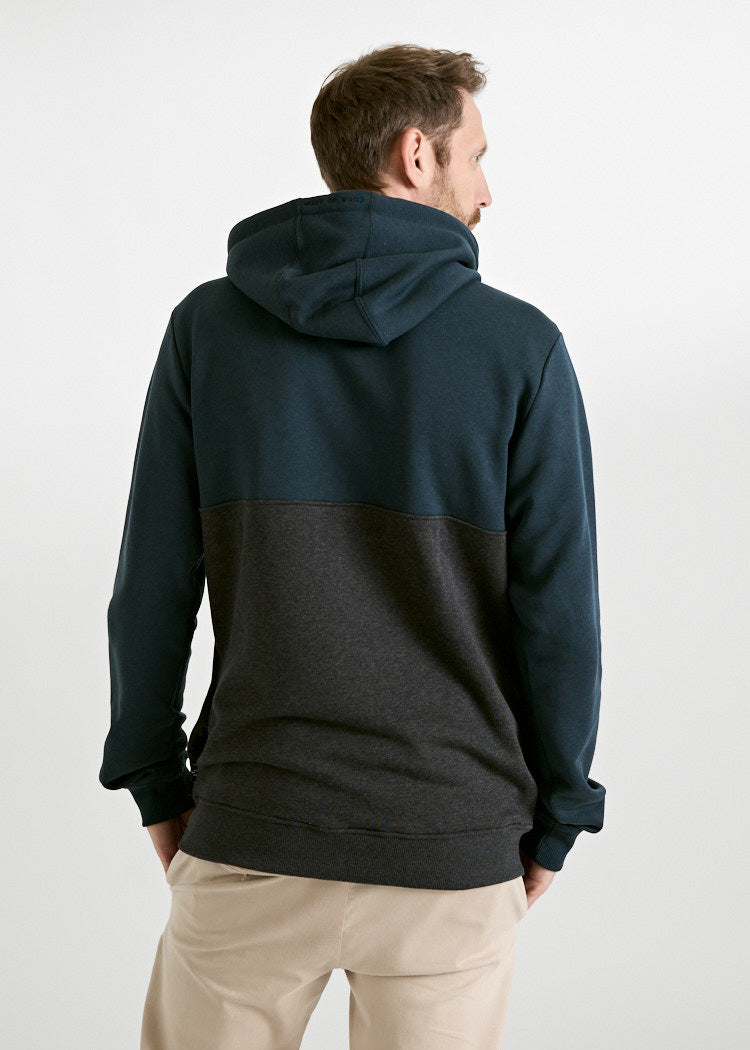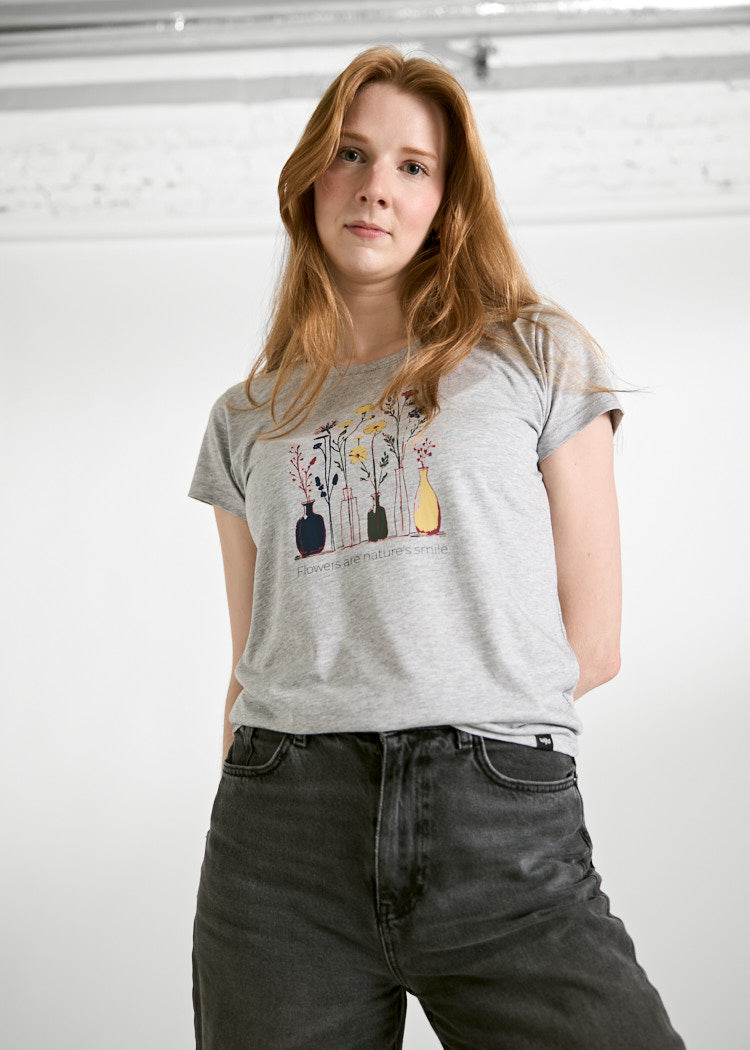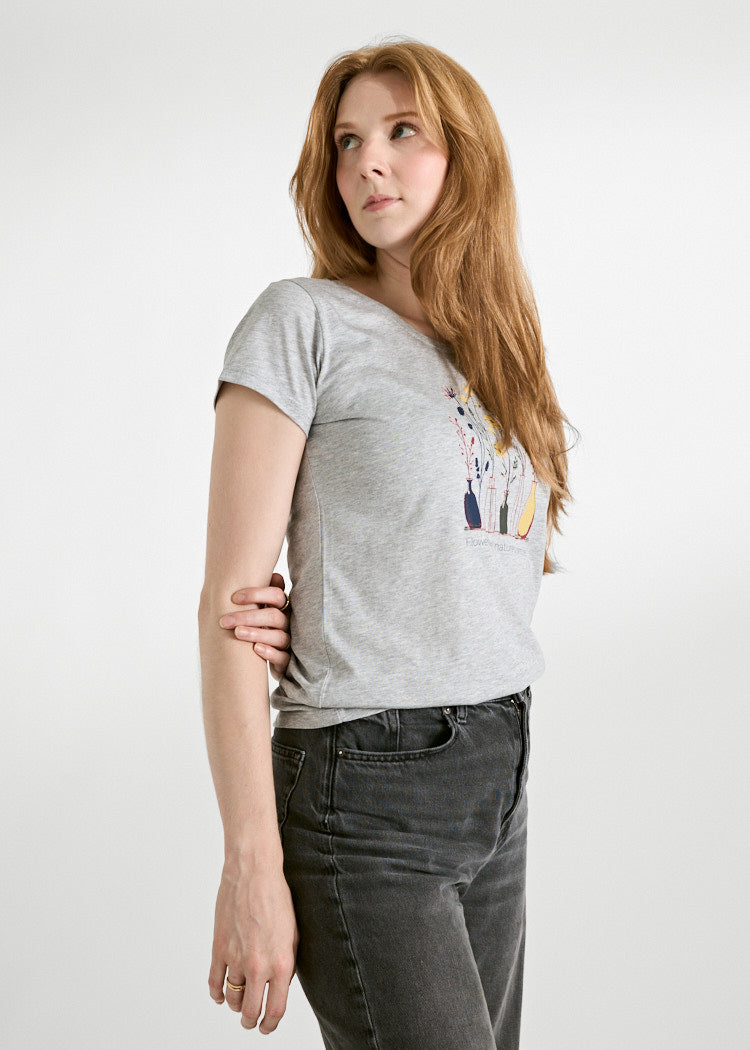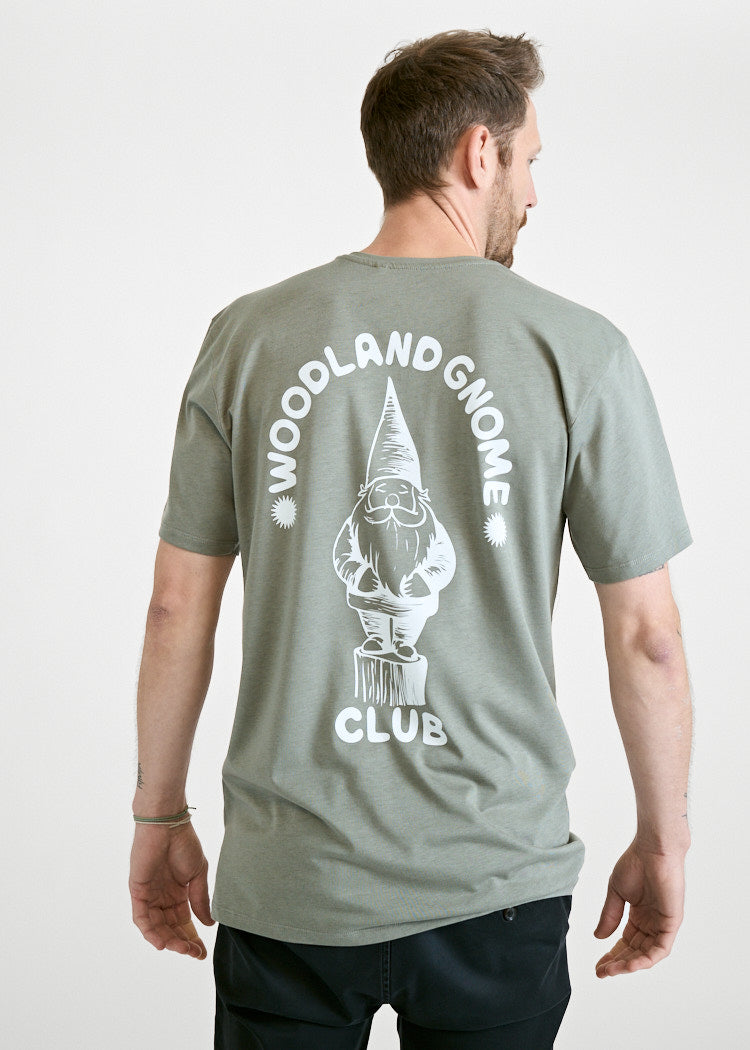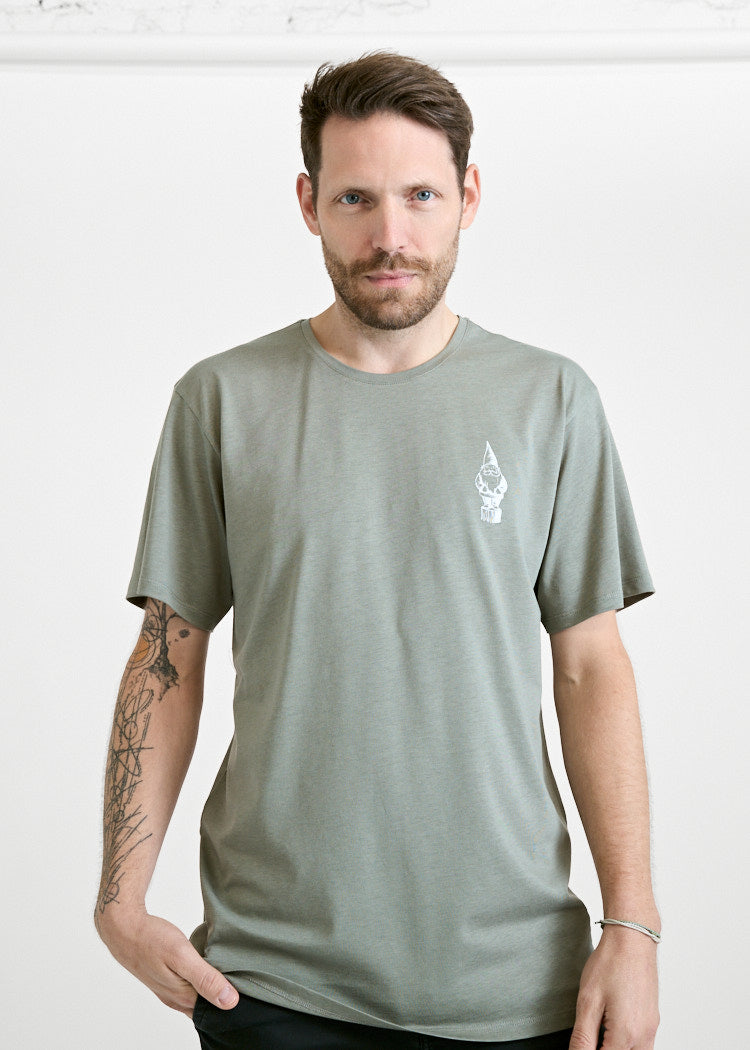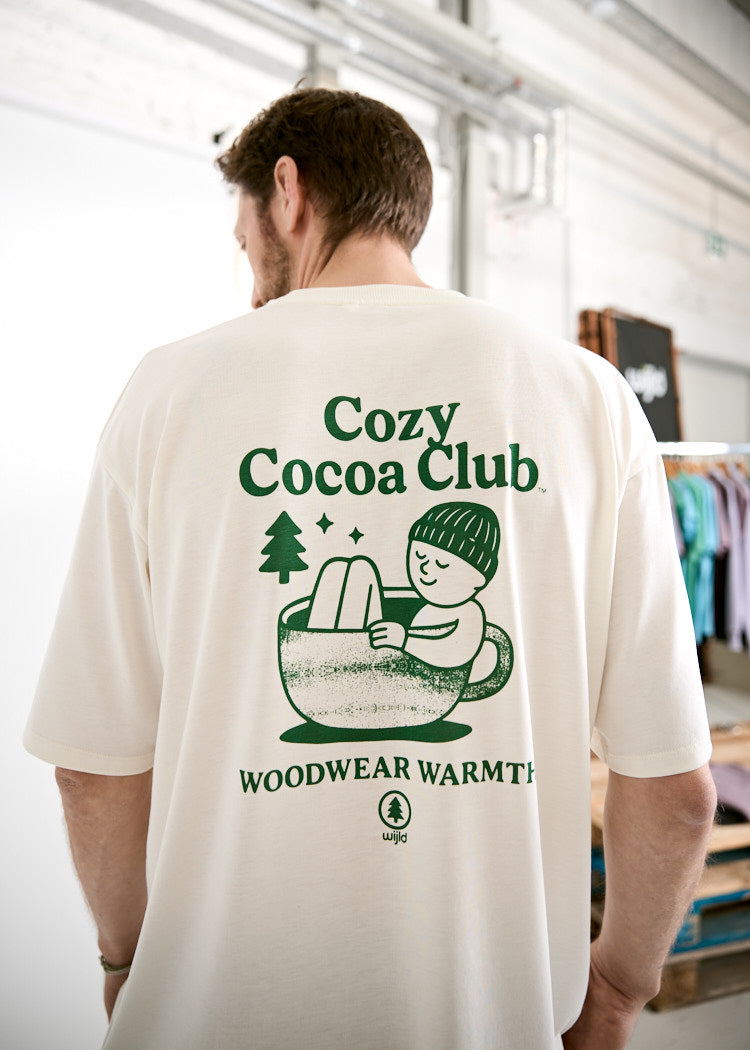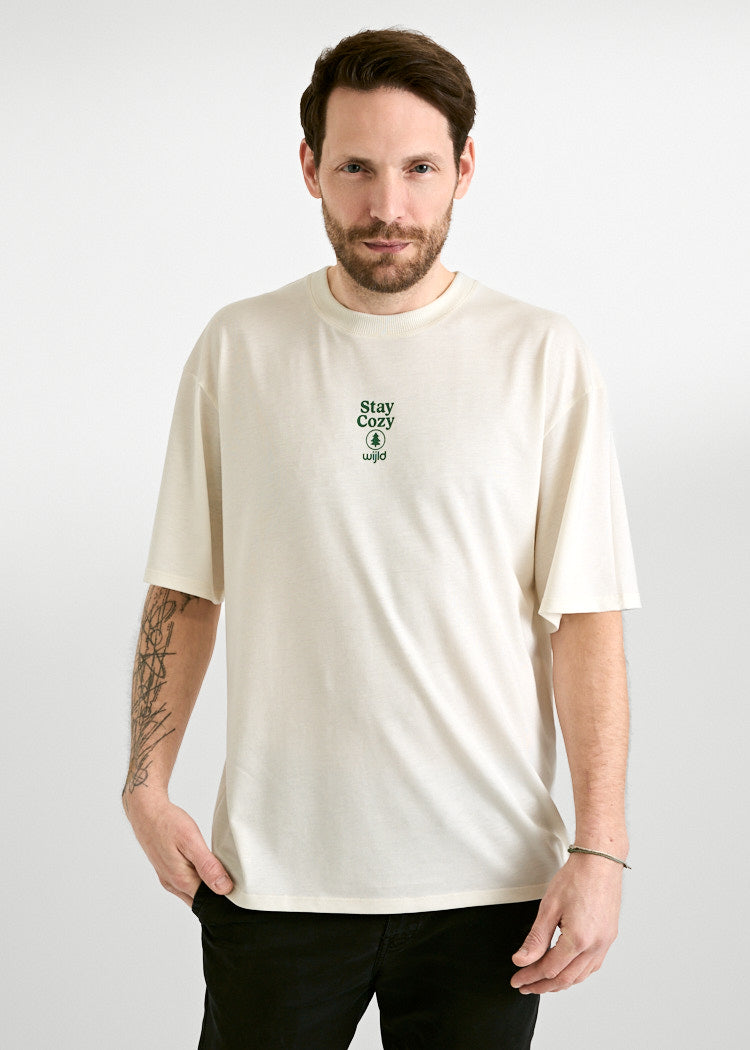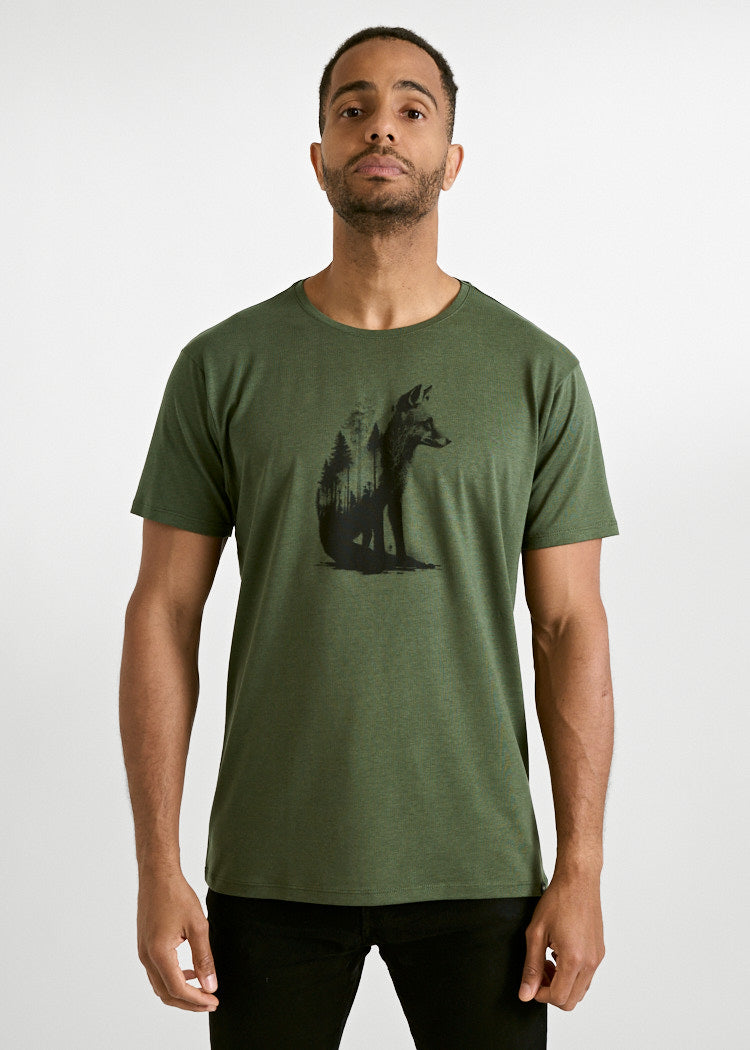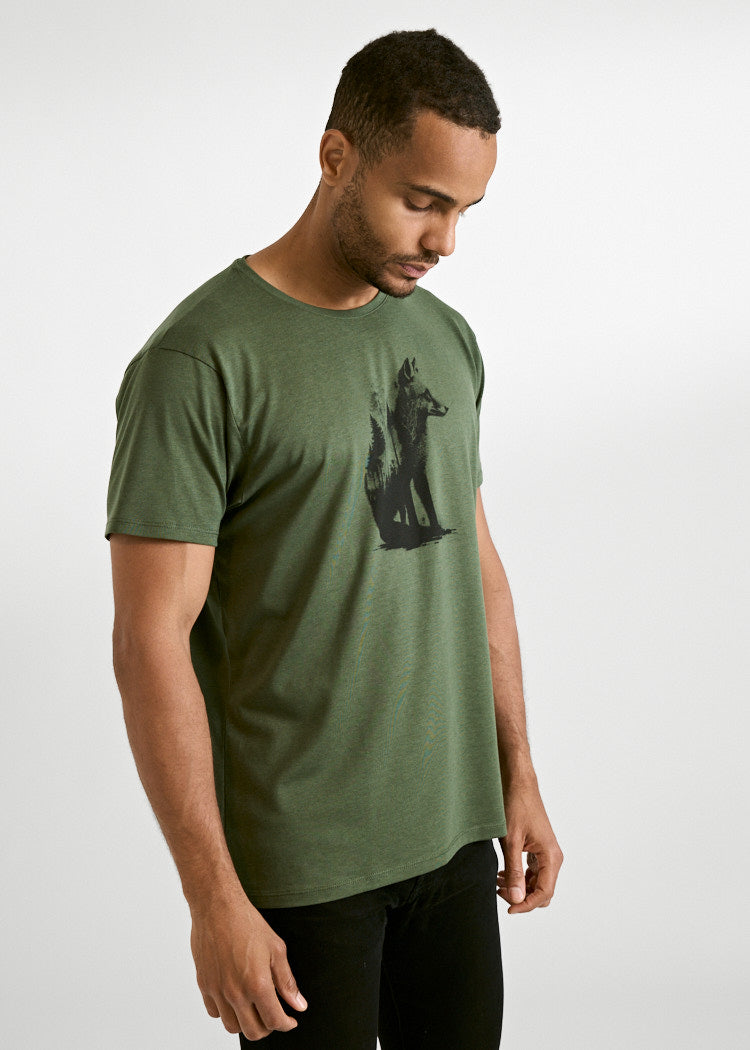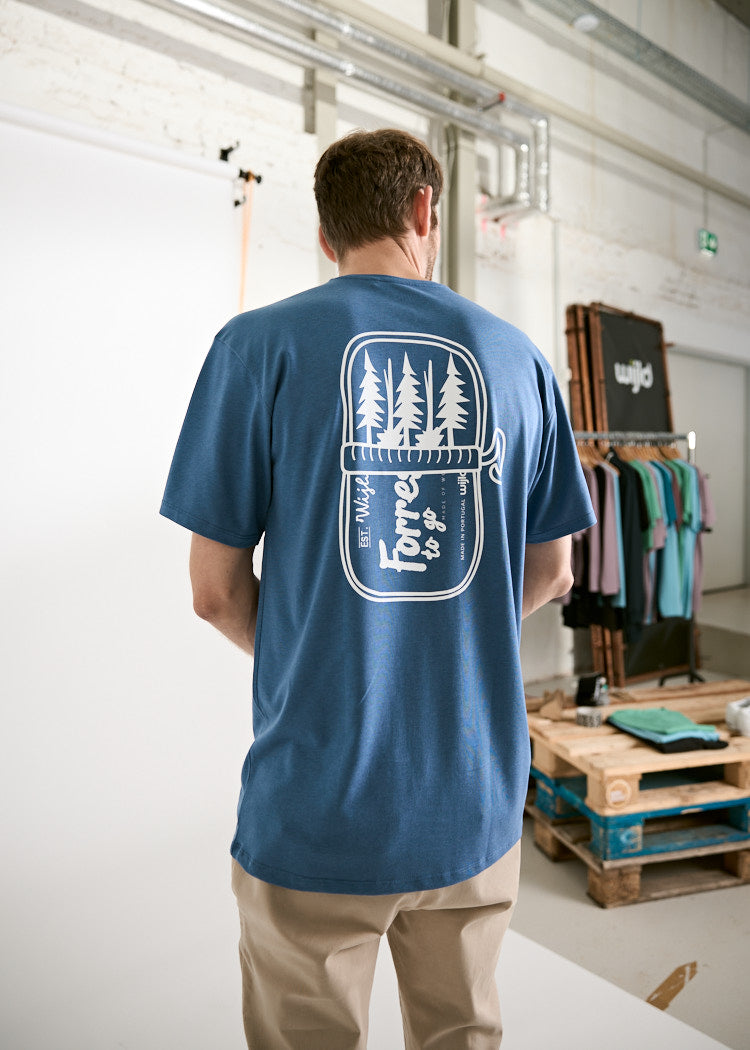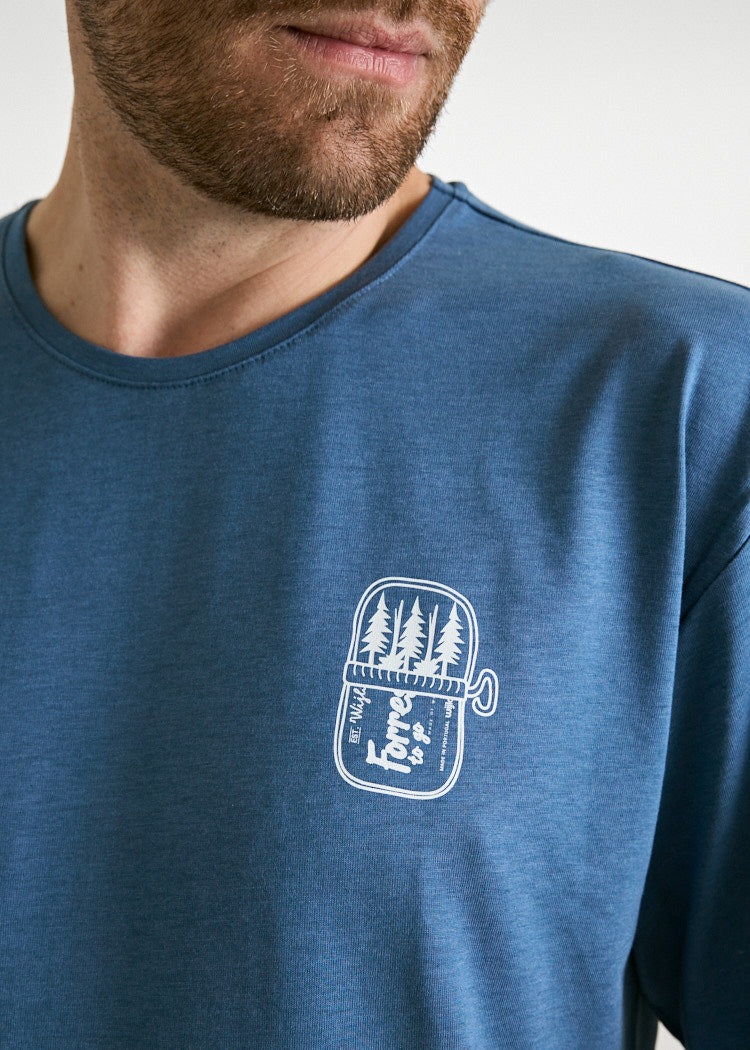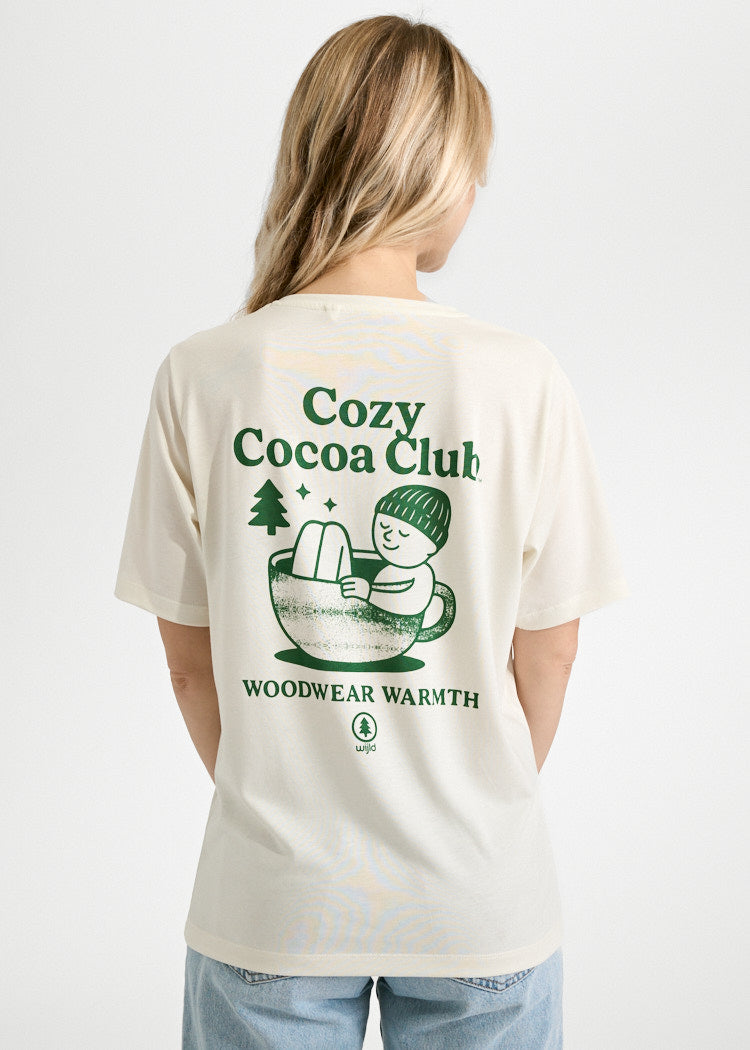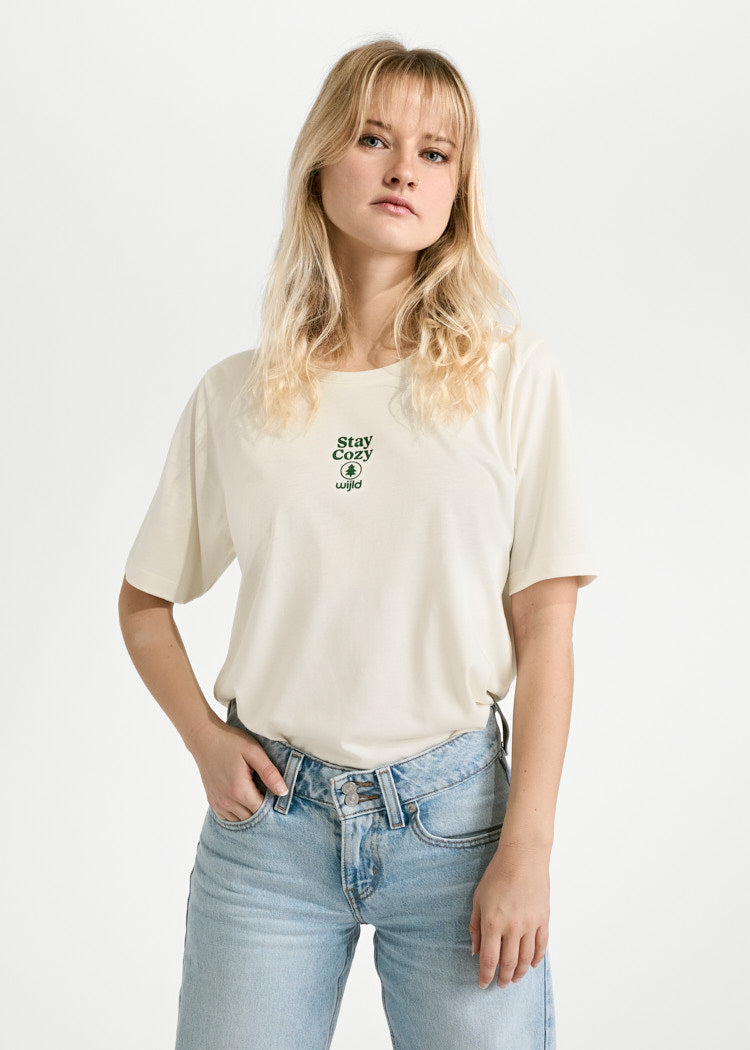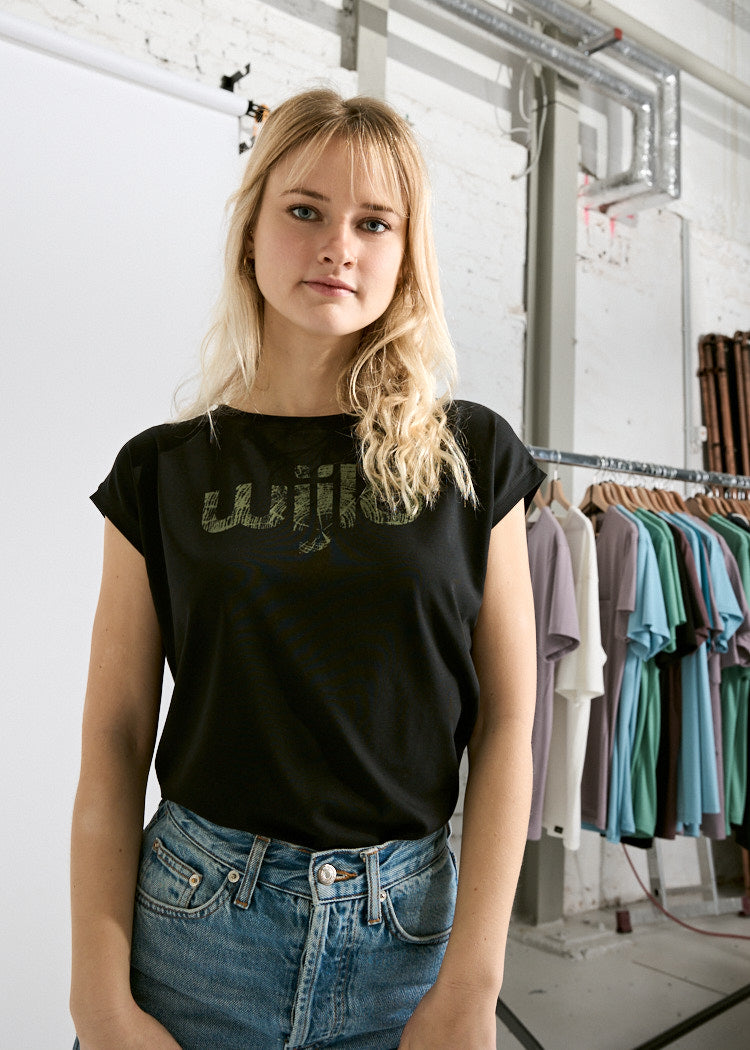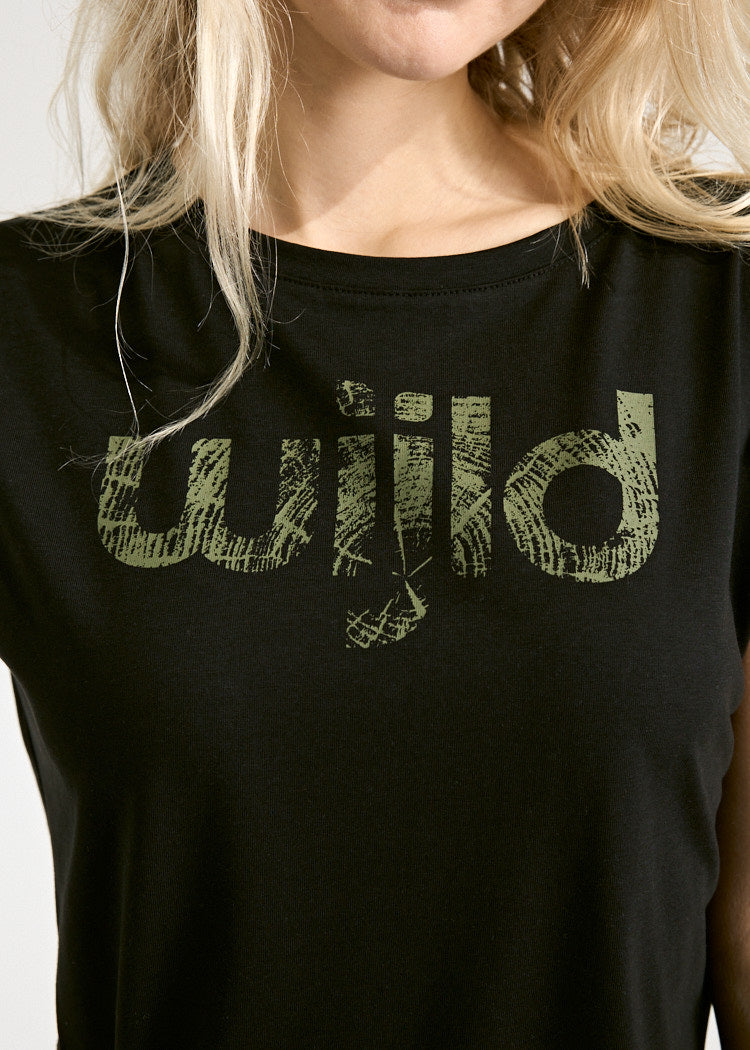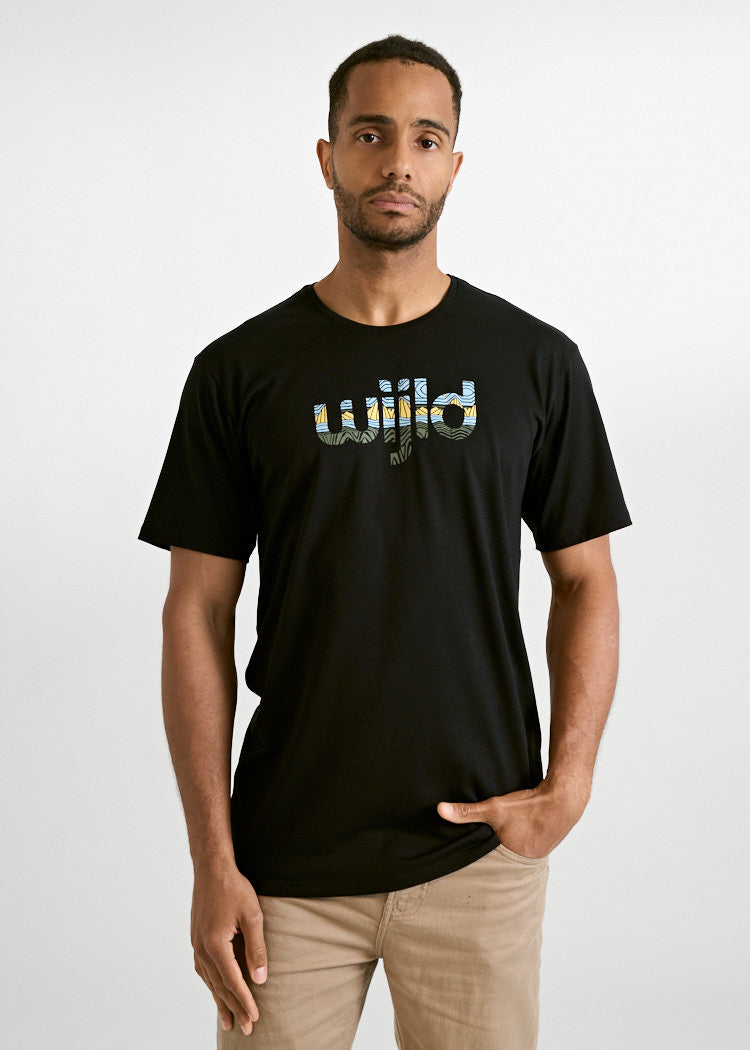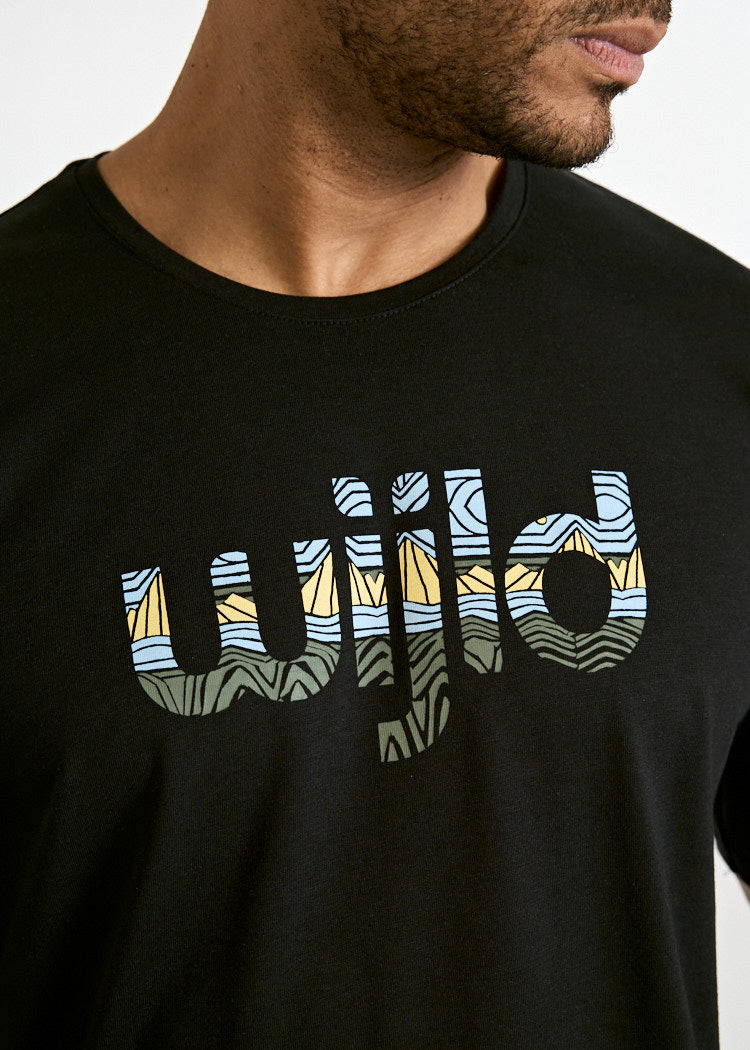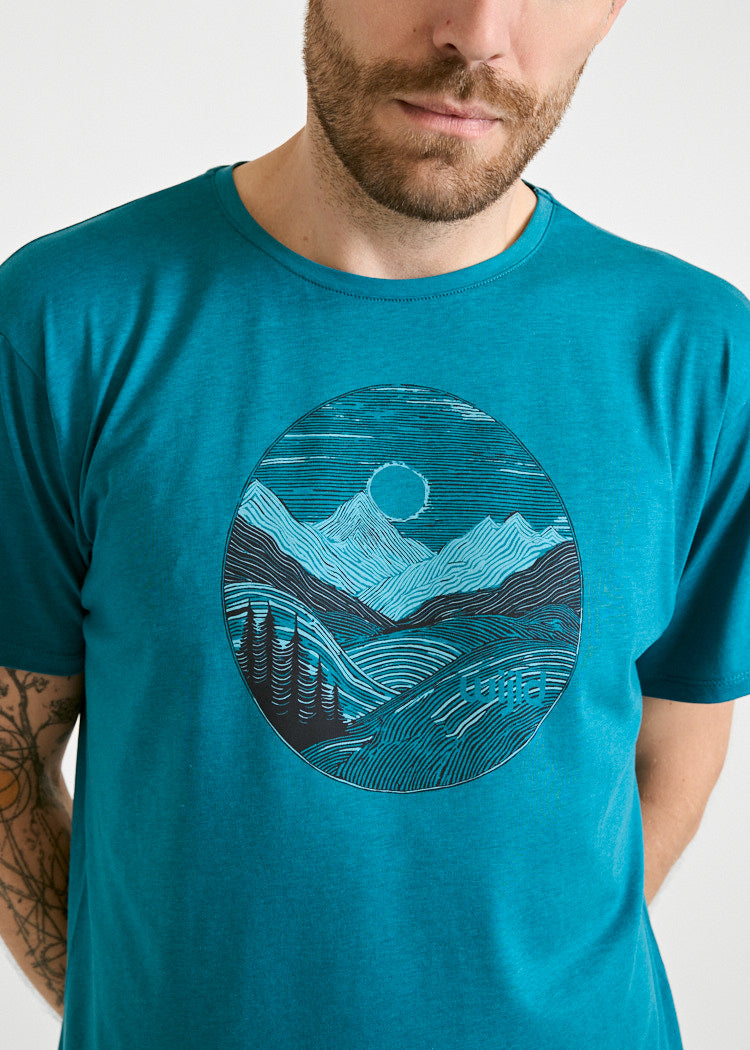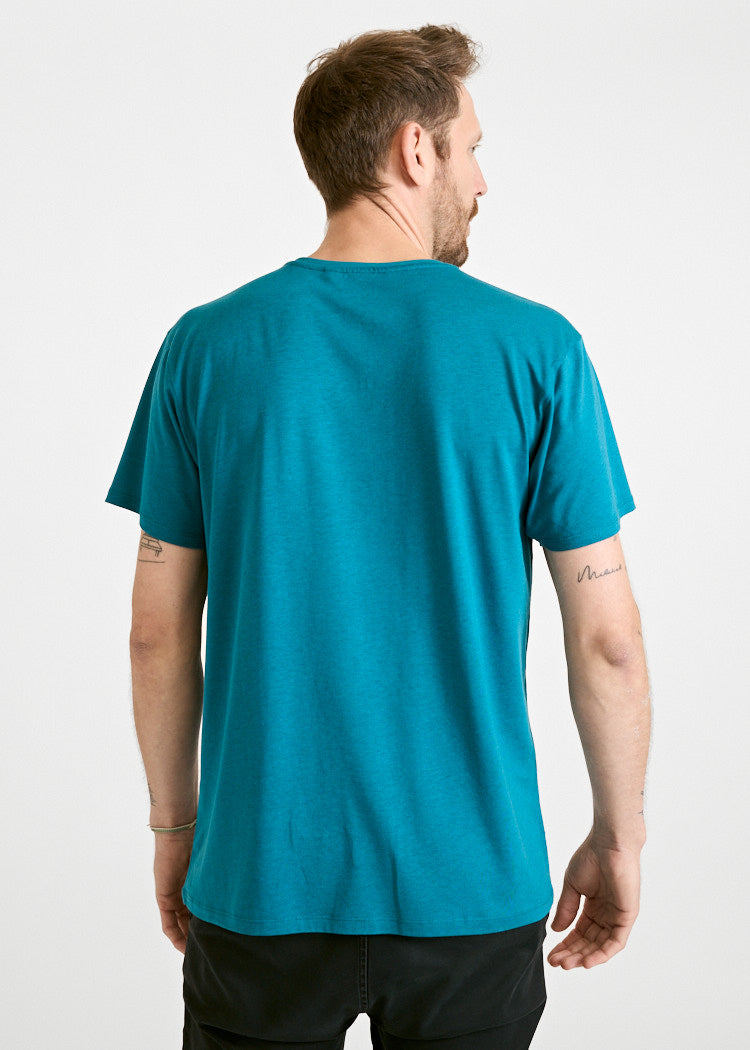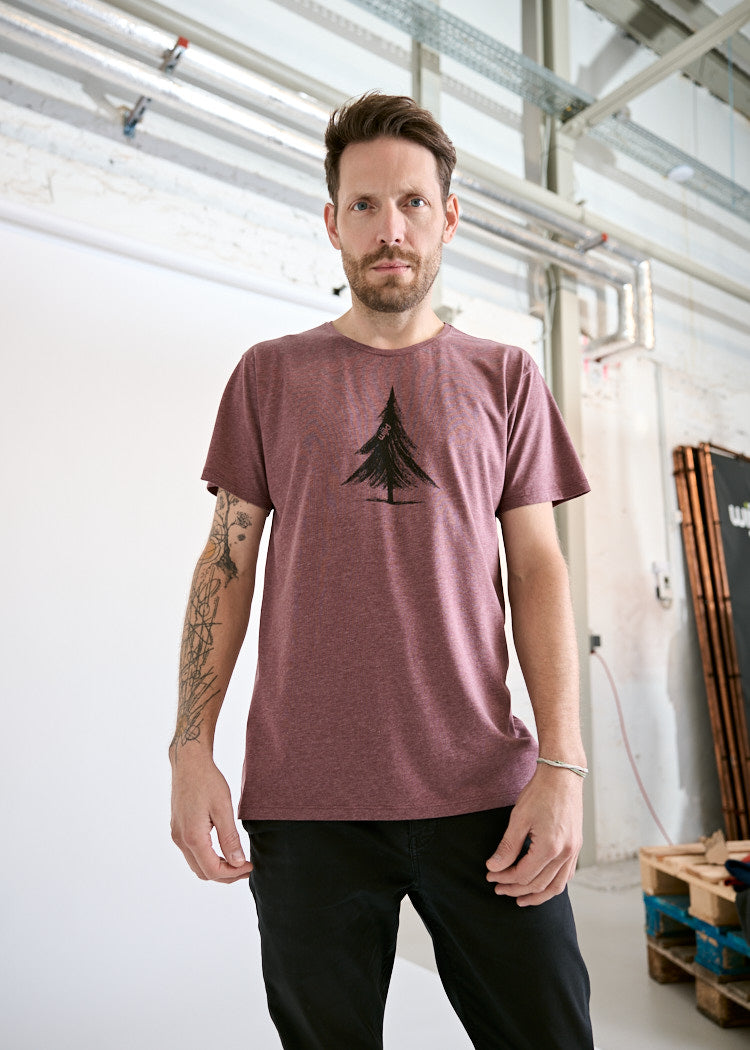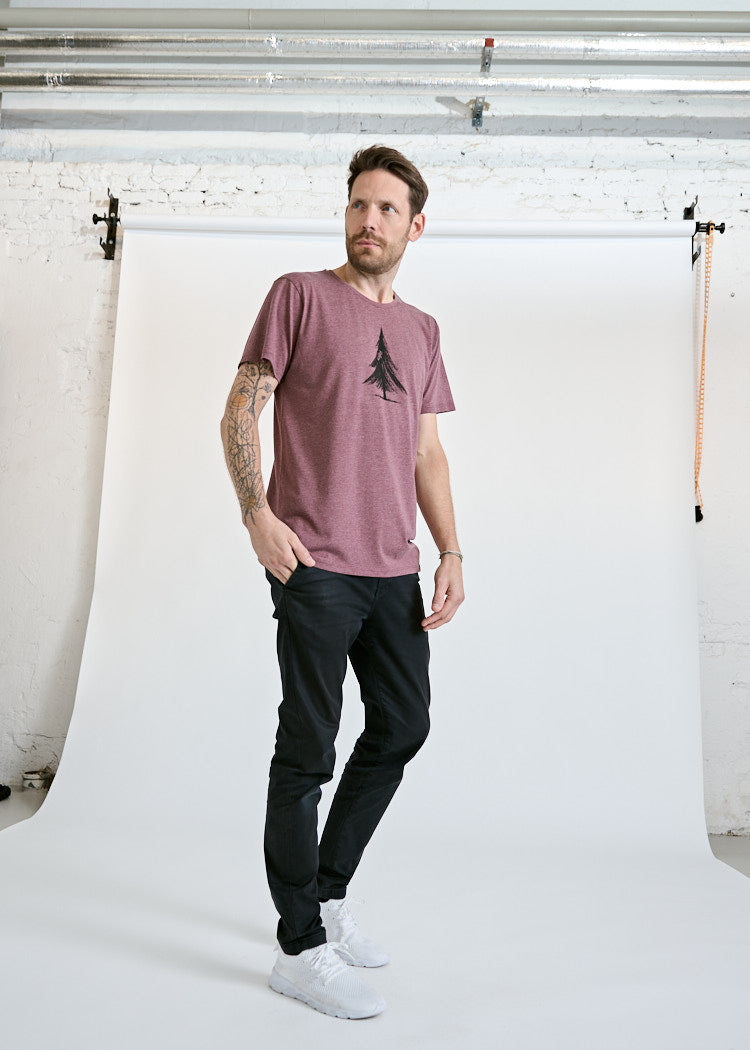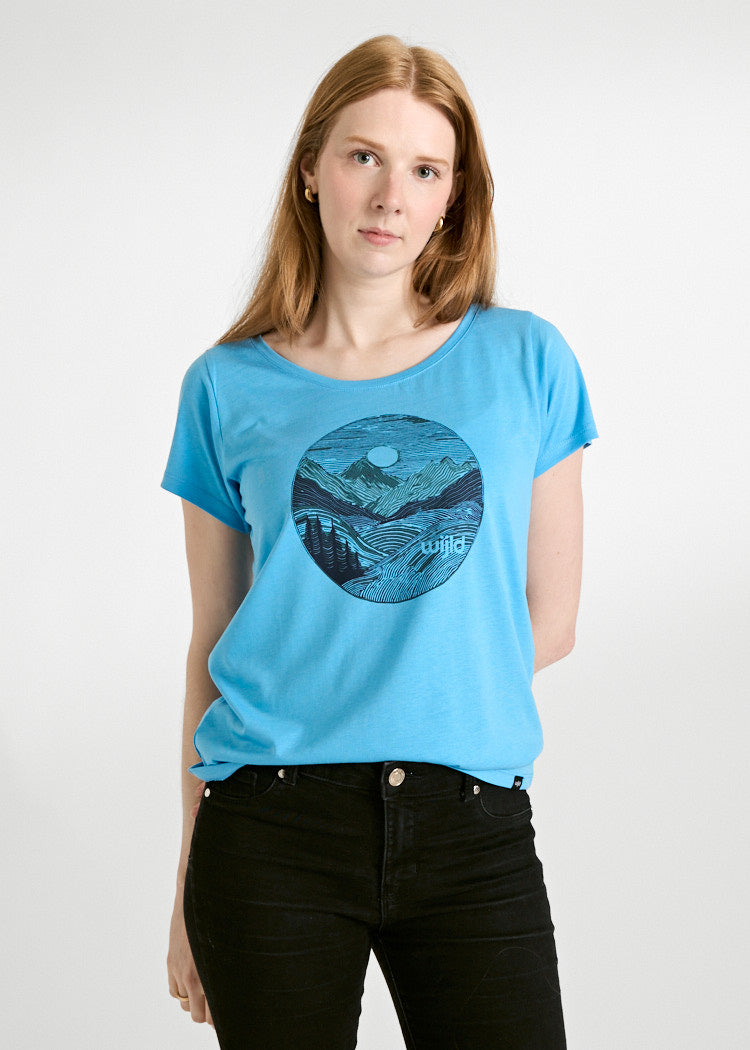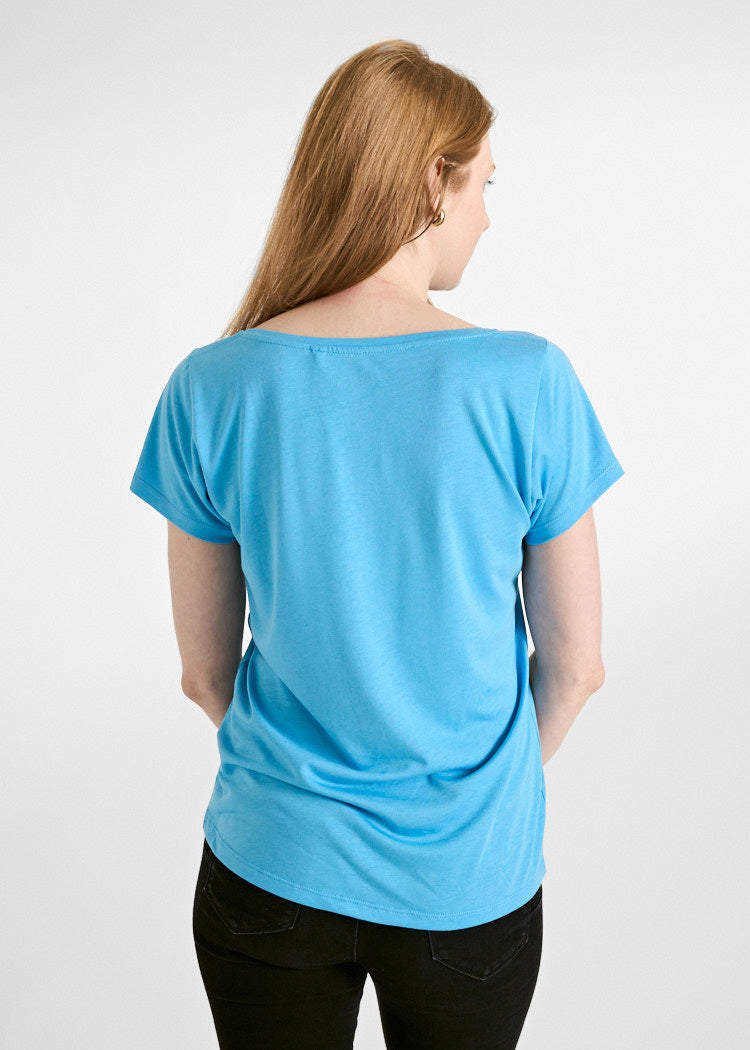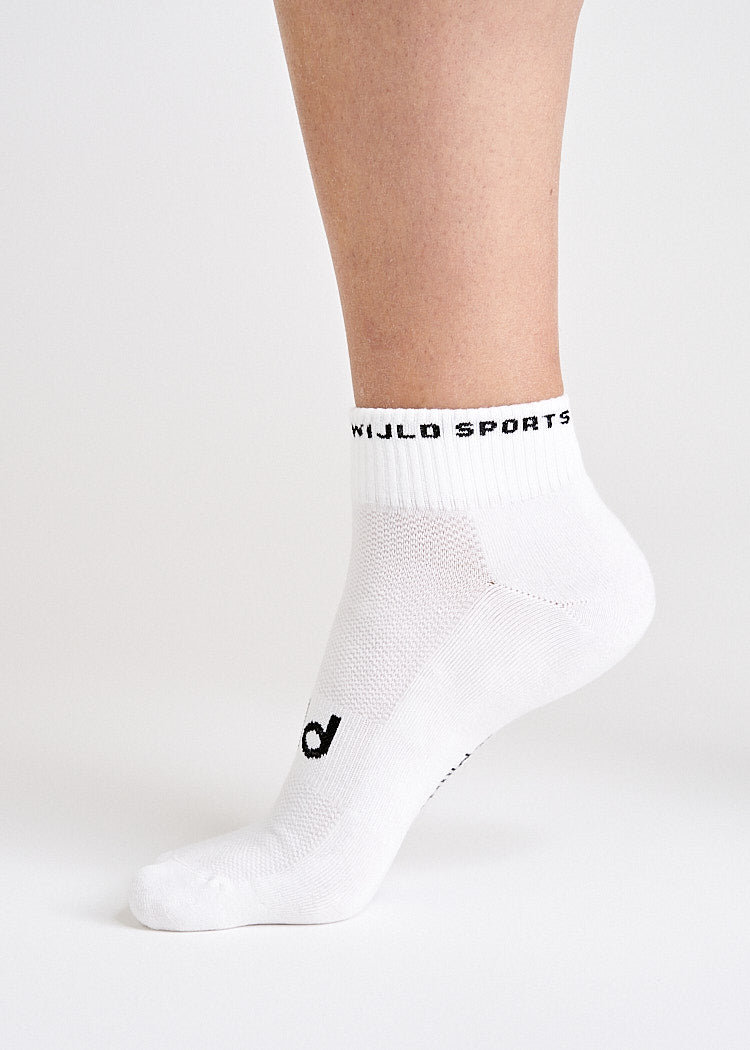
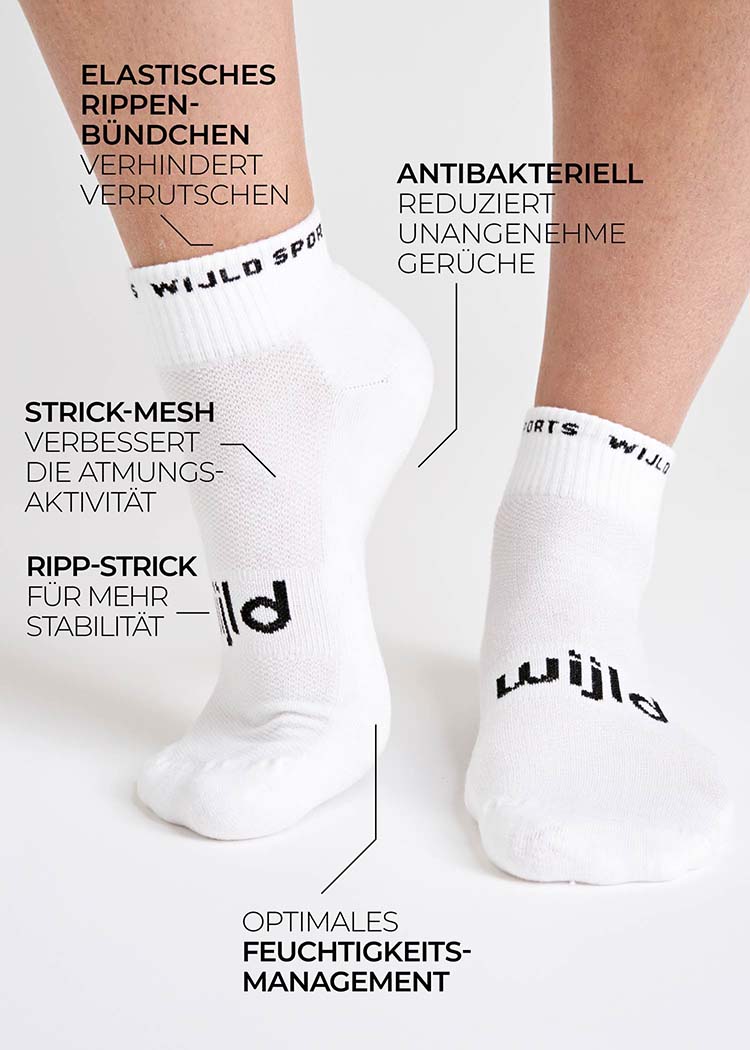
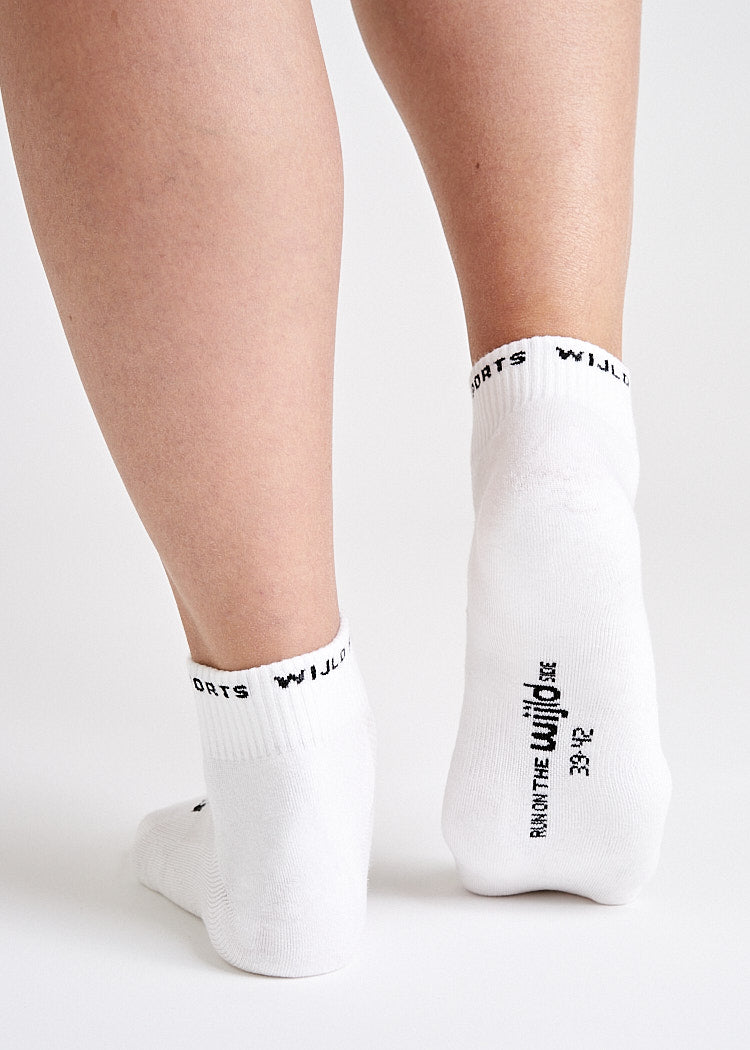
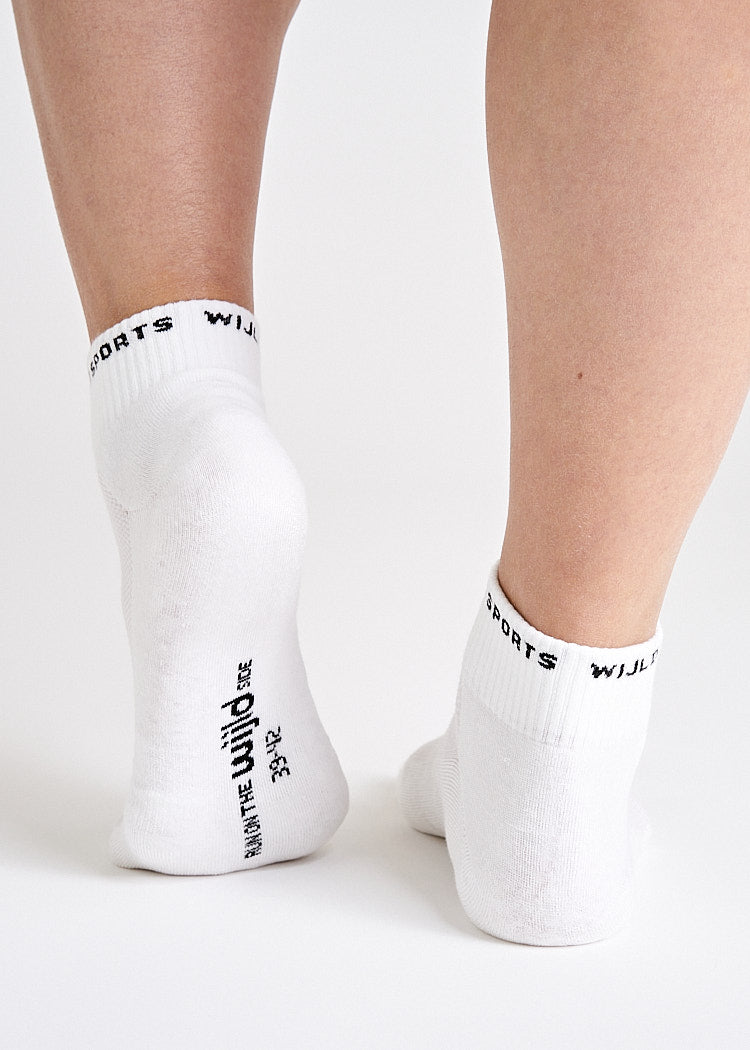
WOODSOCKS® HALF-HIGH SPORTS SOCKS BRIGHT WHITE
Tax included. Shipping calculated at checkout
The Woodsocks sports socks from wijld: Experience our soft & breathable socks made of wood – they fit perfectly and are fairly & sustainably manufactured in Portugal!
- Soft & robust material made of 62% Lyocell (from sustainable forestry), 21% organic cotton, 15% polyamide & 2% elastane
- Cushioned sole & lightweight upper for optimal breathability
- Antibacterial & temperature-regulating properties
- Our wooden socks are vegan - free from animal ingredients
- Fairly made: From fiber to sock, 100% made in the EU
- For maximum durability: Wash at max. 30°C, avoid fabric softener & tumble drying
- For every order we protect 0.6 m² of forest soil in the Sauerland
CARE
With proper care, you can wear your new favorite pieces for a long time, saving not only resources but also your clothes. And the best part? You don't have to wash them as often as you might think!
Clothing made from wood fibers, but also wool, offers natural benefits: Both materials have antibacterial properties and quickly release moisture back into the air. This deprives bacteria of their breeding ground, prevents odors, and keeps your clothes fresher for longer. Less washing not only means less effort, but also a longer lifespan for your clothes – this also applies to all other materials in your wardrobe!
A quick note: Our garments that contain wool need to be cared for differently than, for example, our WoodShirts.
When it comes to recycled wool clothing, air it out before washing it! Wool largely cleans itself by neutralizing odors and absorbing and releasing moisture. If you do need to wash your wool items, we recommend washing them by hand and at a low temperature to protect the fibers.
The right care for a long service life
Even though our clothes stay fresher longer, they still need to be washed at some point. To ensure you enjoy your sweaters and shirts for as long as possible, we recommend these environmentally friendly care instructions:
- Wash at 30 degrees
Gentle temperatures are perfectly sufficient to clean your clothes. This not only protects the fibers but also saves energy. - Use low spin cycle
Low speeds protect sensitive fibers and reduce wear. - No fabric softener & tumble dryer
Wood fibers, organic cotton, and recycled cotton don't require fabric softener. They're naturally soft and comfortable to wear. And because our materials wick moisture away quickly, your clothes will air dry quickly—saving you the trouble of using a dryer. Unfortunately, dryers also shorten the lifespan of your favorite items.
SHIPPING & RETURNS
We ship your order within Germany using DHL's GoGreen service. We also deliver to many other countries. You can find out here what these are, what the shipping costs are and what order value is waived.
An item doesn't fit you or you don't like the color? No problem, because we have our returns portal for such cases. Here you can read how to return an item to us and what conditions you have to observe.
MATERIAL & MANUFACTURING
What makes our clothing so special is, on the one hand, the unique feel and properties of wood fibers, and, on the other hand, our environmentally friendly production. In addition to wood, we also use other sustainable fibers for our favorite pieces.
Here is an overview:
Wood fibers
1. Production
By using wood, we use a raw material that is also native to our region, thus avoiding long transport routes. The wood for our eco-friendly clothing also comes exclusively from sustainable forestry. The use of wood is also more environmentally friendly than cotton in many respects:
- Neither additional fertilizers nor large amounts of water for irrigation are necessary: For example, with just one WoodShirt we save 1,000 liters of water
- 3-4 times less land is needed to achieve the same fiber yield as cotton
- During the production of our wood fiber, CO² emissions can be reduced by 20 times
- Fiber production works in a closed material cycle, using an organic solvent that is recycled over and over again.
You can read more about the advantages of our wood fiber production here .
2. Functions
Wood fibers, in our case almost exclusively Lyocell, not only provide a great feeling on the skin, they also have many positive properties:
- Due to their rapid moisture absorption, wood fibers have a temperature-balancing effect, cooling in summer and warming in winter.
- Because wood fibers wick away moisture better, bacterial growth is inhibited, giving wooden clothing antibacterial properties. This means it stays fresher for longer.
- The smooth fiber structure of wood fibers ensures a silky-soft feel, which reduces friction on the skin and thus prevents itching and irritation
organic cotton
We usually use a small percentage of organic cotton in our wooden clothing to ensure perfect comfort for both men and women. Wood fiber alone produces a fabric that is far too silky and (without a proper shape) very flowing, making it unsuitable for men. By using organic cotton, however, we can give our wooden clothing more stability and thus ensure optimal comfort.
It's very important to us that we only use cotton from certified organic farming. This allows us to avoid the use of chemical pesticides and fertilizers. Furthermore, the water consumption in the production of organic cotton is lower than that of conventional cotton.
We've processed organic cotton from Greece, India, and Tanzania, among others. However, we generally strive to use the shortest possible routes, knowing that cotton doesn't grow in our climate zone.
Recycled cotton
Another component of our sustainable collections is the use of recycled cotton. Instead of consuming new resources, we use fibers from old textiles and production offcuts to create high-quality fabric for our garments. However, we only use recycled cotton in a blend. But why not use 100% recycled cotton? During the recycling process, the cotton fibers become shorter, which can affect their durability and longevity. To compensate for this and still ensure high quality, we combine recycled cotton with other materials, including cotton. This way, we create a long-lasting favorite for you that helps avoid waste and conserve resources.
Recycled polyester
We primarily use recycled polyester in our functional and sports shirts. Recycled polyester is made from old plastic bottles and other plastic waste, which are then processed into new, high-performance fibers. These closed fibers cannot absorb moisture. In our sports shirts, they ensure that moisture is quickly transported away from the body and can be absorbed and released by the outer wood fiber. The result is a functional fabric that is breathable, temperature-regulating, and environmentally friendly. The use of recycled materials also protects the environment, as the production of recycled polyester requires significantly less energy than the production of new polyester.
Recycled wool
We use recycled wool in some of our favorite pieces. Instead of producing new wool fibers, we upcycle old wool textiles or production waste, carefully reprocessing them, and turning them into new, high-quality yarns. This process not only saves raw materials but also significantly reduces the energy and water consumption normally associated with the production of new wool. Recycled wool offers the same natural properties as virgin wool—it's breathable, temperature-regulating, and incredibly warm—all with a smaller environmental footprint.

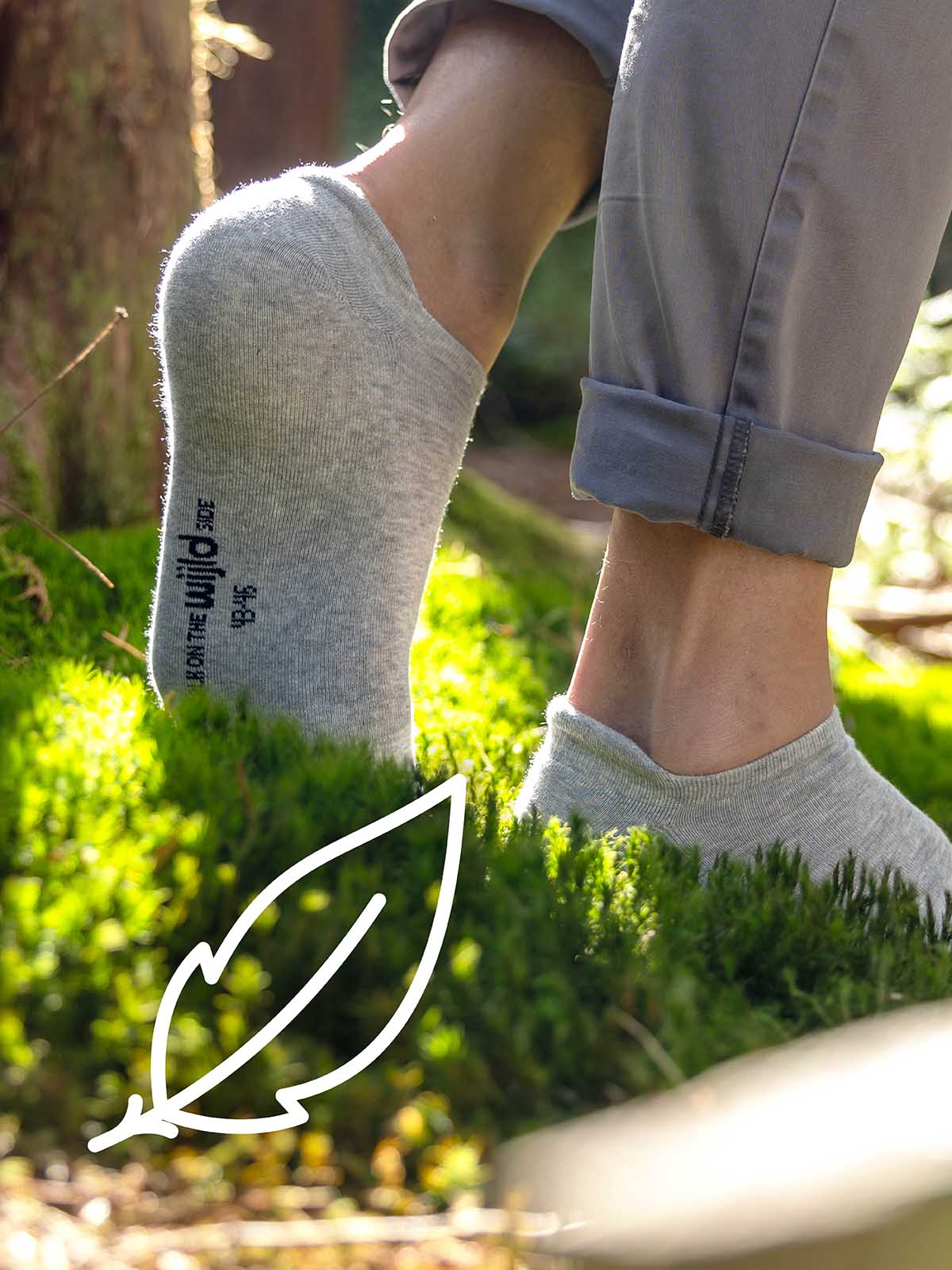
Our socks made from super-soft wood pulp pamper your feet with a unique level of comfort. The flowing, soft fibers of our WoodSocks® make uncomfortable, scratchy socks a thing of the past. Combined with the extra-soft sole, you'll enjoy an unparalleled walking experience – almost like walking on clouds.
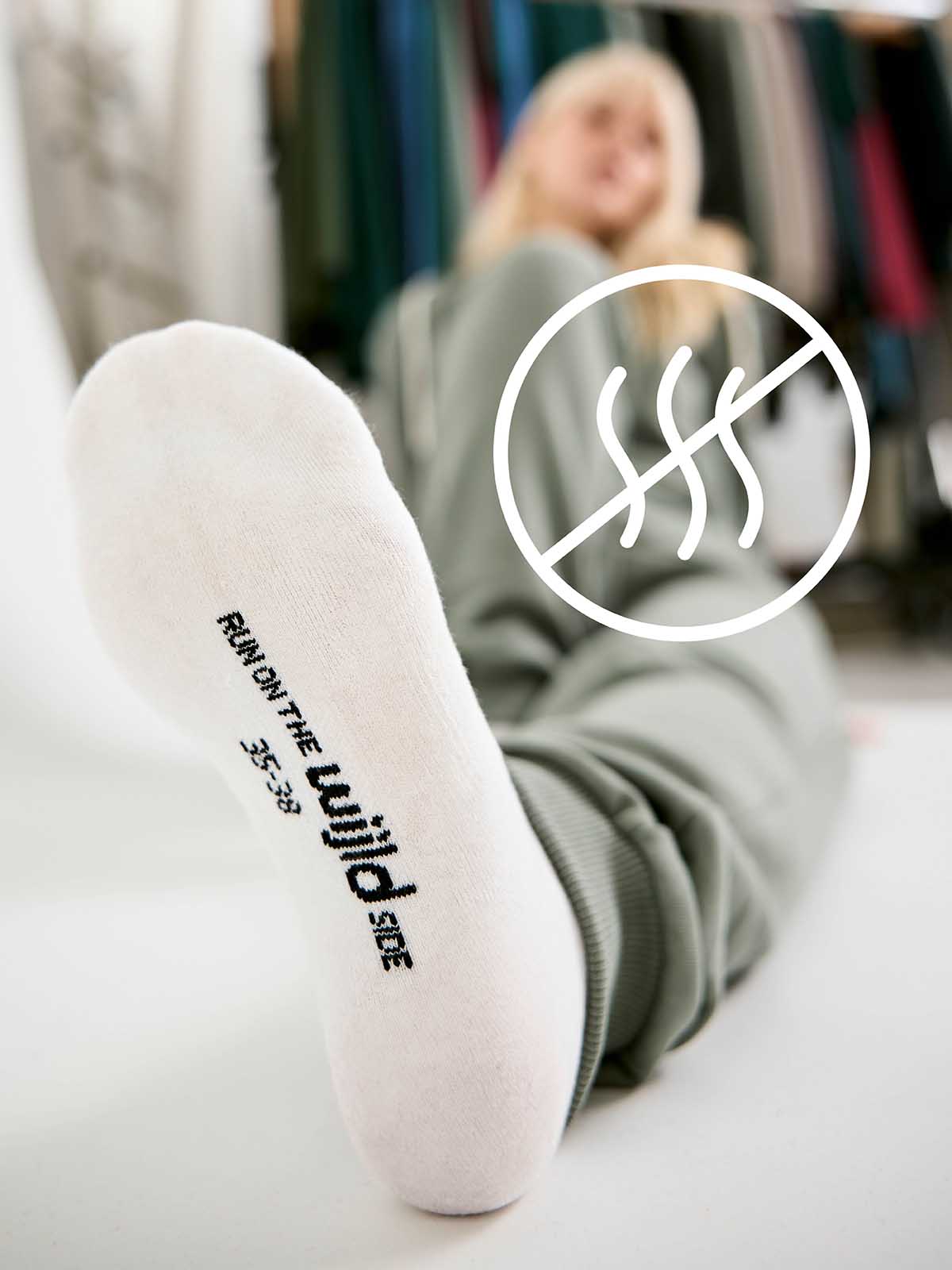
Wooden socks help reduce unpleasant odors. Thanks to the highly breathable fibers derived from wood, optimal moisture regulation deprives bacteria of their breeding ground, and fewer bacteria mean fresher feet for longer.
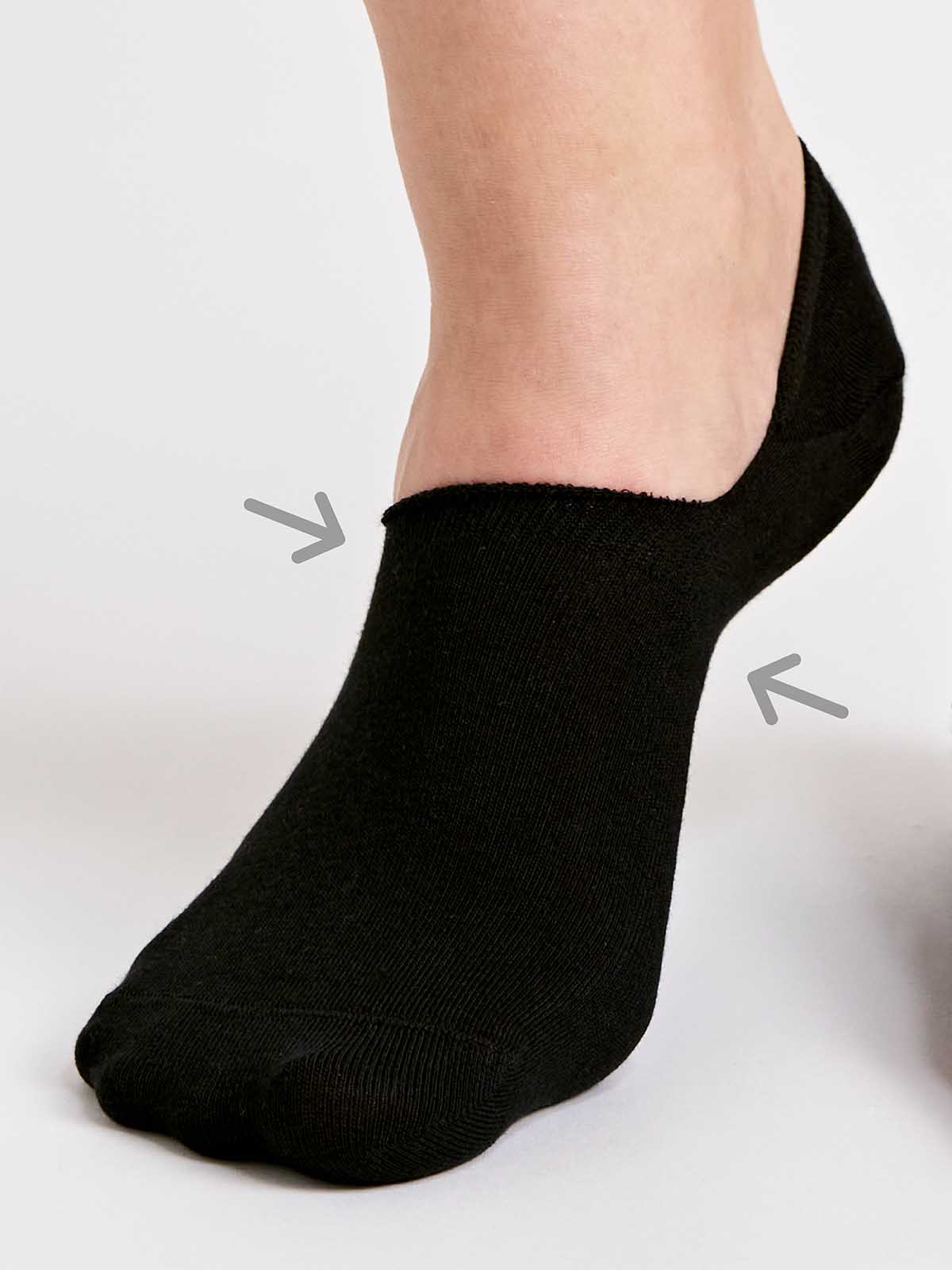
Our socks are designed to adapt perfectly to your feet. Elastic ribbed cuffs ensure that nothing slips and everything stays in place – for a perfect fit with every movement.
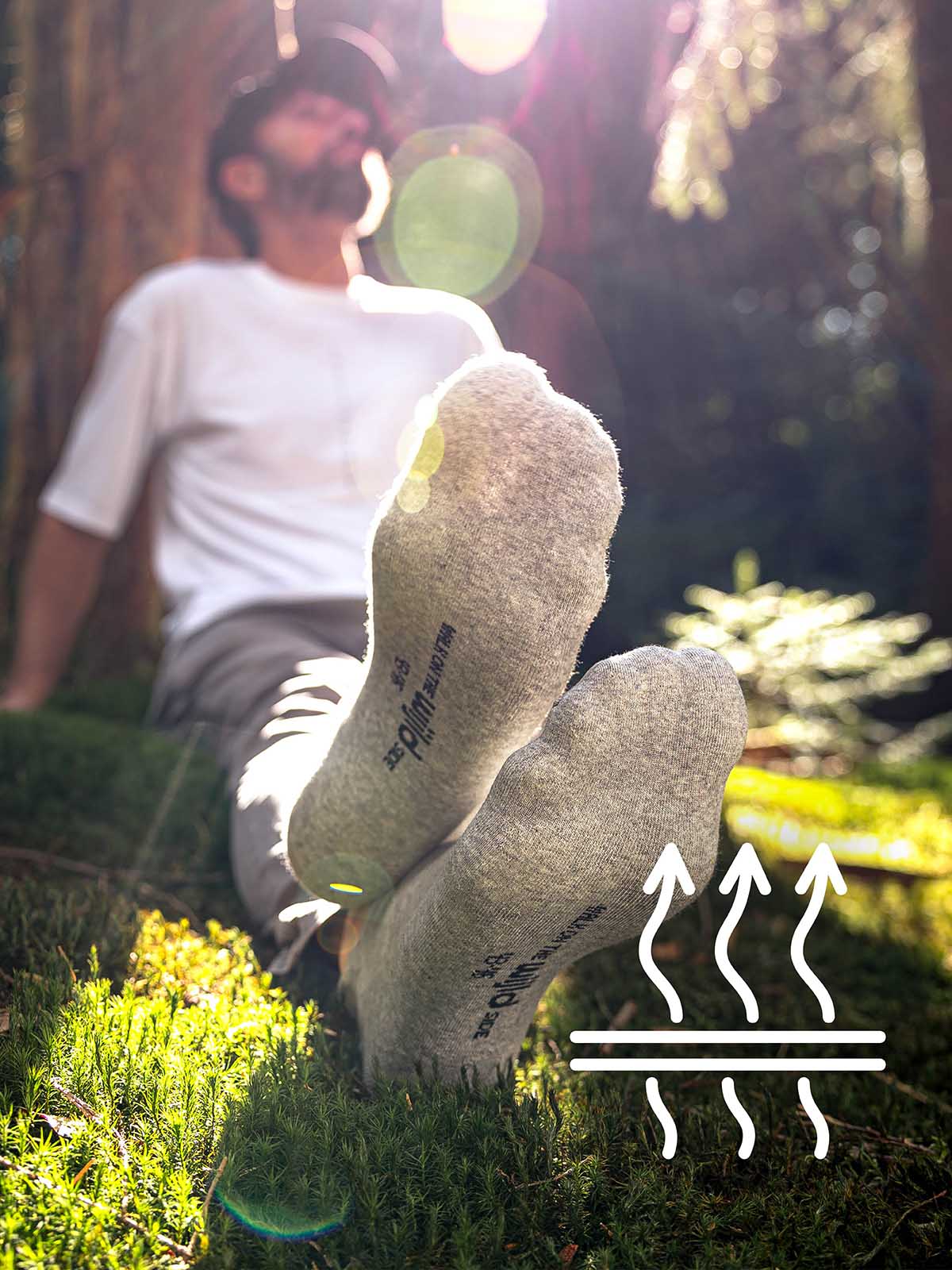
With 50% higher moisture absorption than cotton, our WoodSocks ensure an optimal skin climate. Your feet stay pleasantly dry – for happy feet with every step.

Our socks not only stand for comfort, but also for responsibility. Manufactured in Portugal under fair conditions and using sustainably sourced wood, we save up to 75% CO2 compared to cotton. This way, you're not only doing something good for your feet, but also for the environment.
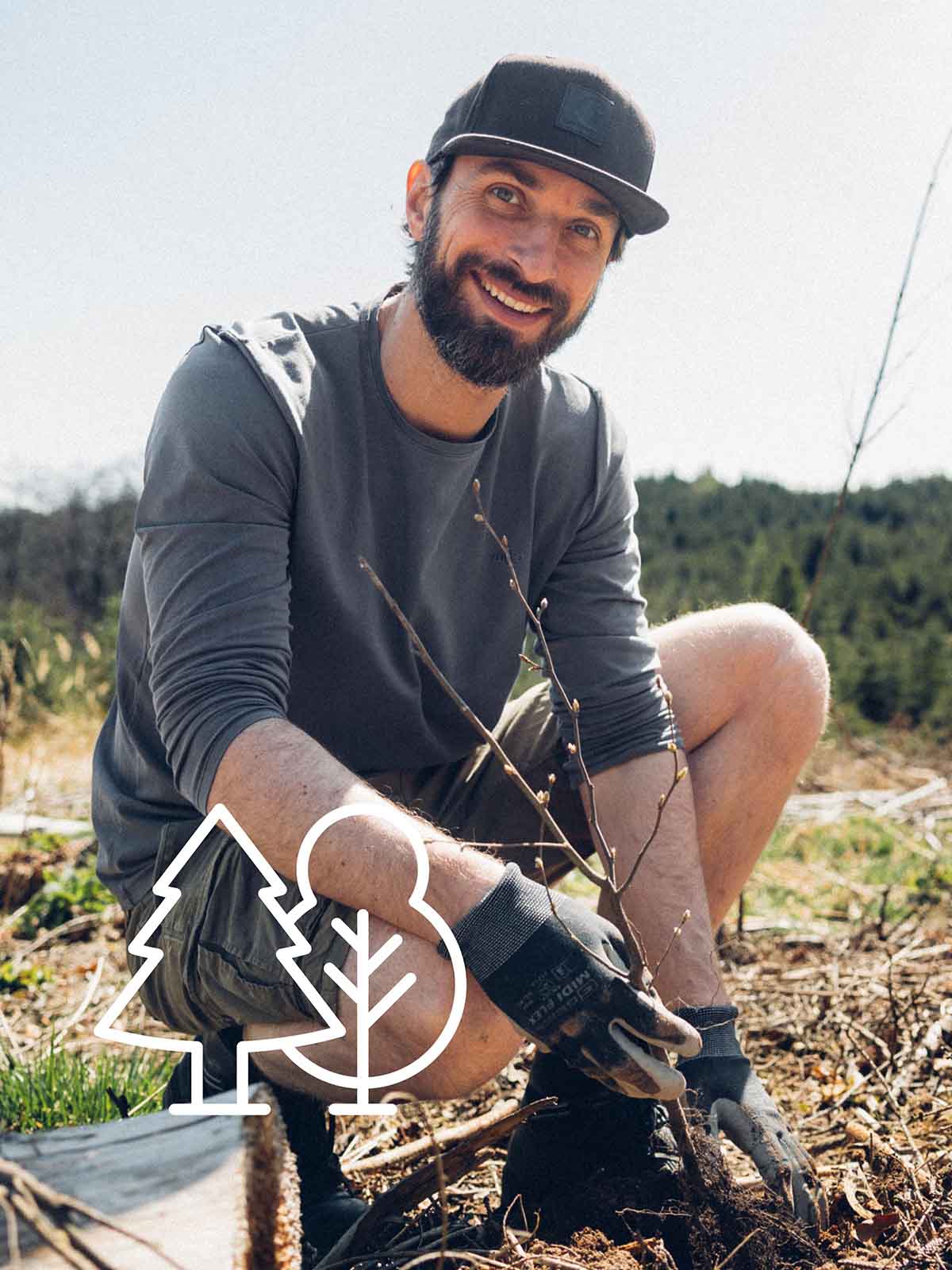
With your order, you support our reforestation project in the Sauerland region. We're planting new trees on an area of over 81,000 square meters damaged by climate change, so that a biodiverse forest can grow there.
Our socks made from super-soft wood pulp pamper your feet with a unique level of comfort. The flowing, soft fibers of our WoodSocks® make uncomfortable, scratchy socks a thing of the past. Combined with the extra-soft sole, you'll enjoy an unparalleled walking experience – almost like walking on clouds.
Wooden socks help reduce unpleasant odors. Thanks to the highly breathable fibers derived from wood, optimal moisture regulation deprives bacteria of their breeding ground, and fewer bacteria mean fresher feet for longer.
Our socks are designed to adapt perfectly to your feet. Elastic ribbed cuffs ensure that nothing slips and everything stays in place – for a perfect fit with every movement.
With 50% higher moisture absorption than cotton, our WoodSocks ensure an optimal skin climate. Your feet stay pleasantly dry – for happy feet with every step.
Our socks not only stand for comfort, but also for responsibility. Manufactured in Portugal under fair conditions and using sustainably sourced wood, we save up to 75% CO2 compared to cotton. This way, you're not only doing something good for your feet, but also for the environment.
With your order, you support our reforestation project in the Sauerland region. We're planting new trees on an area of over 81,000 square meters damaged by climate change, so that a biodiverse forest can grow there.







